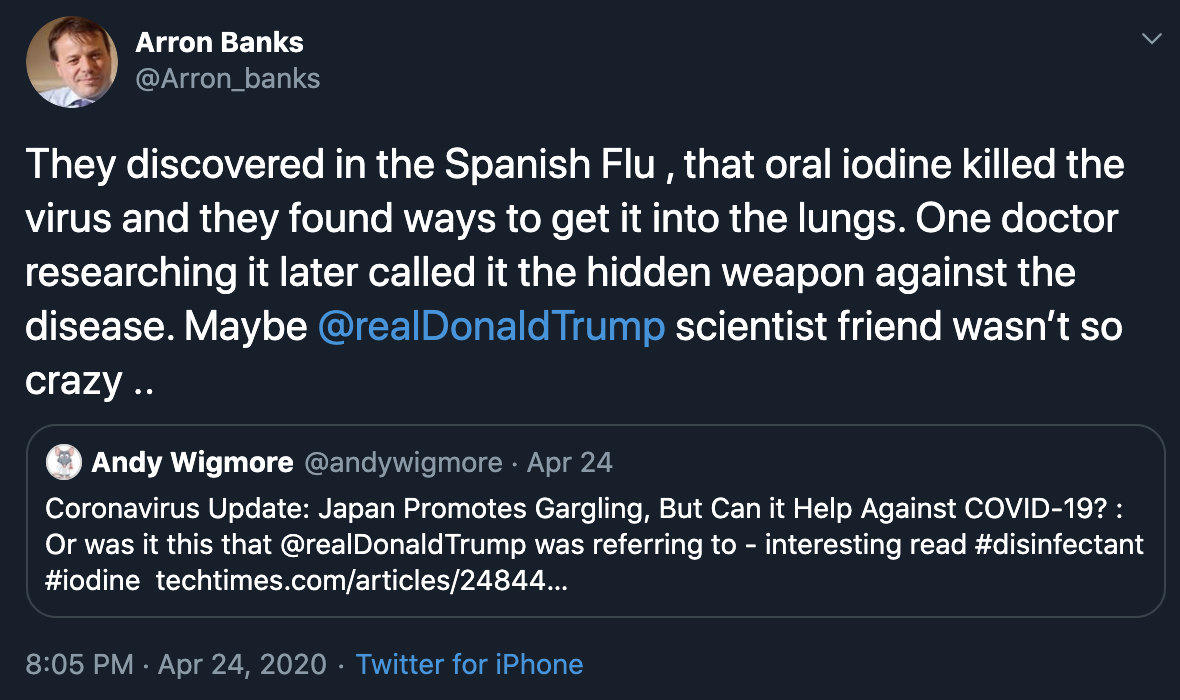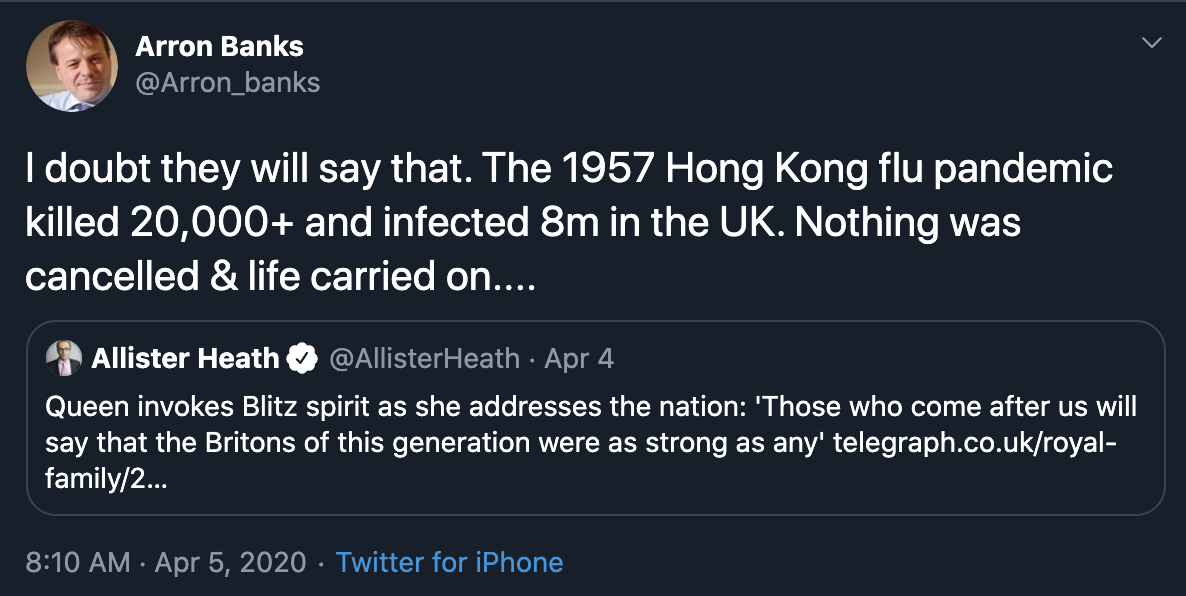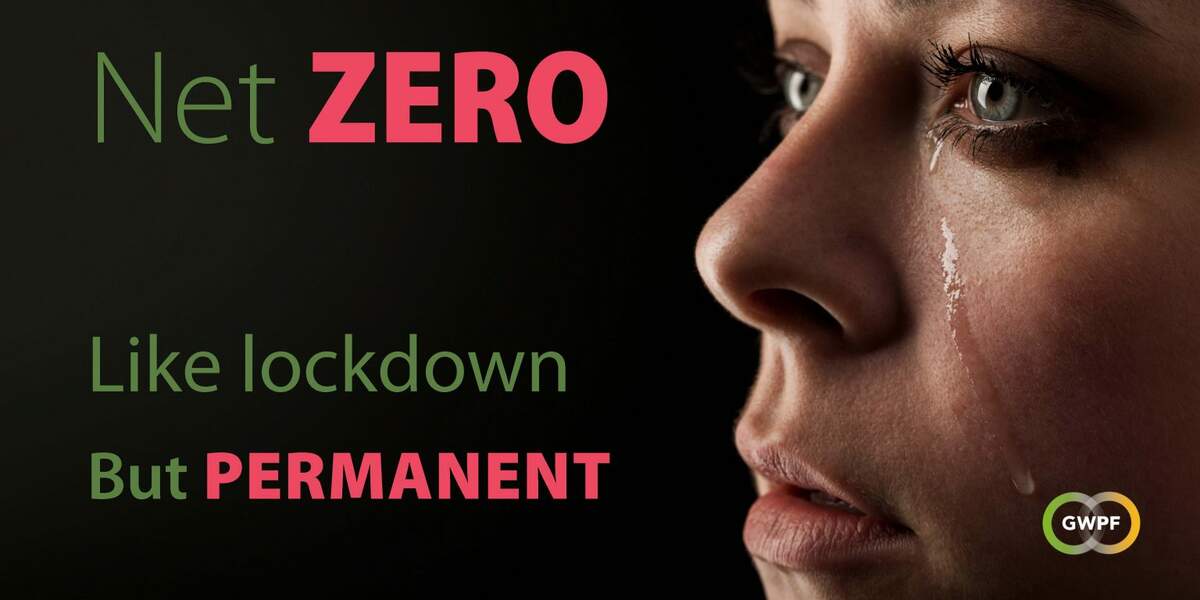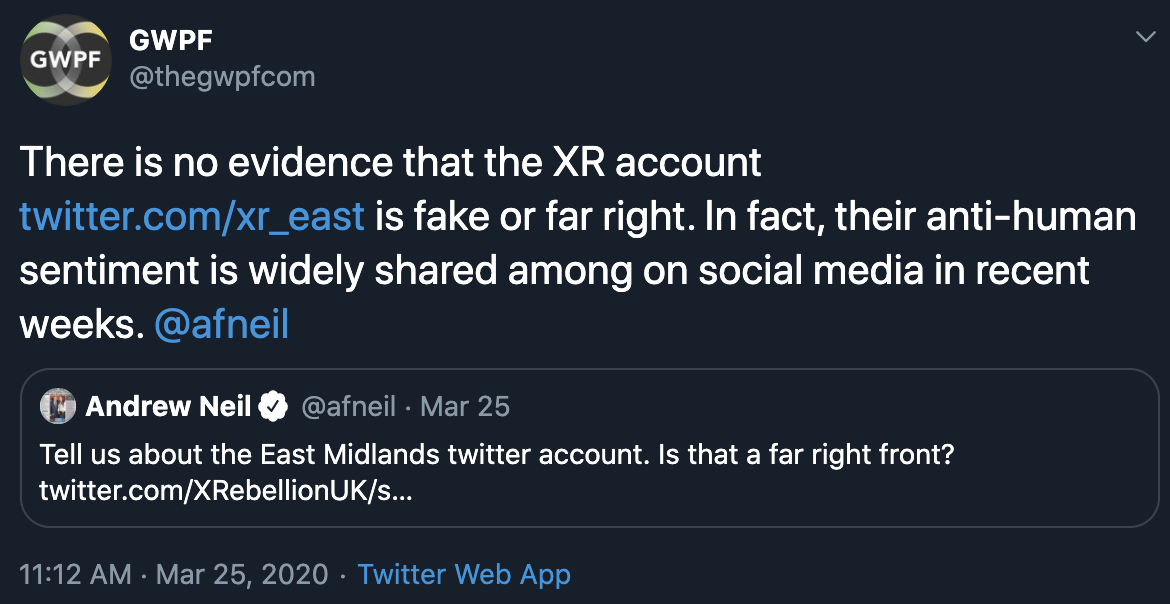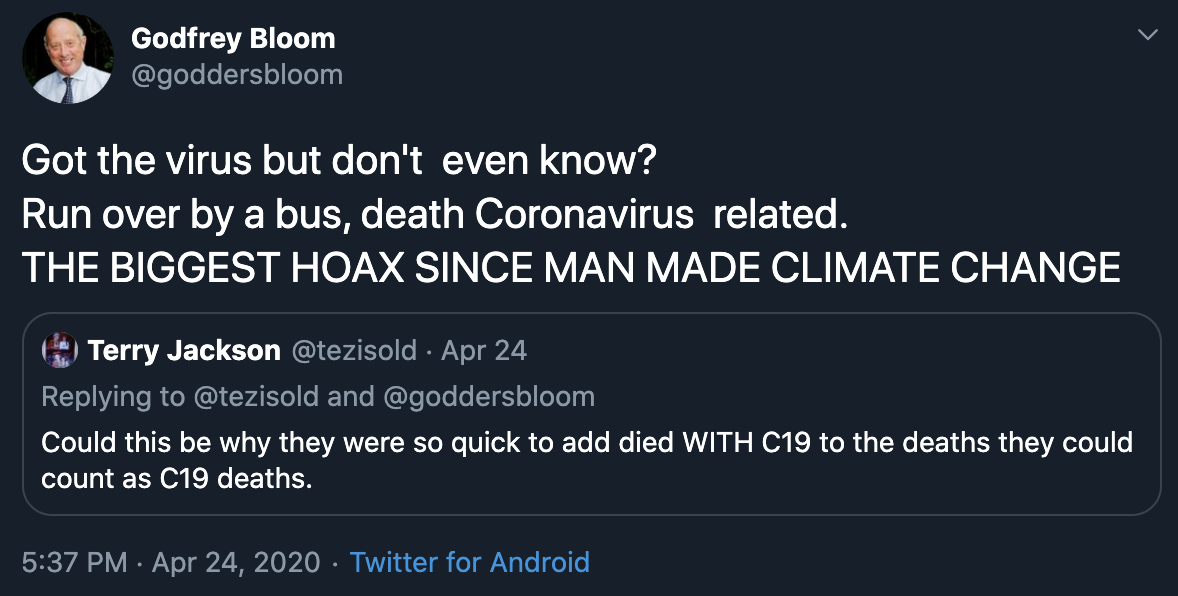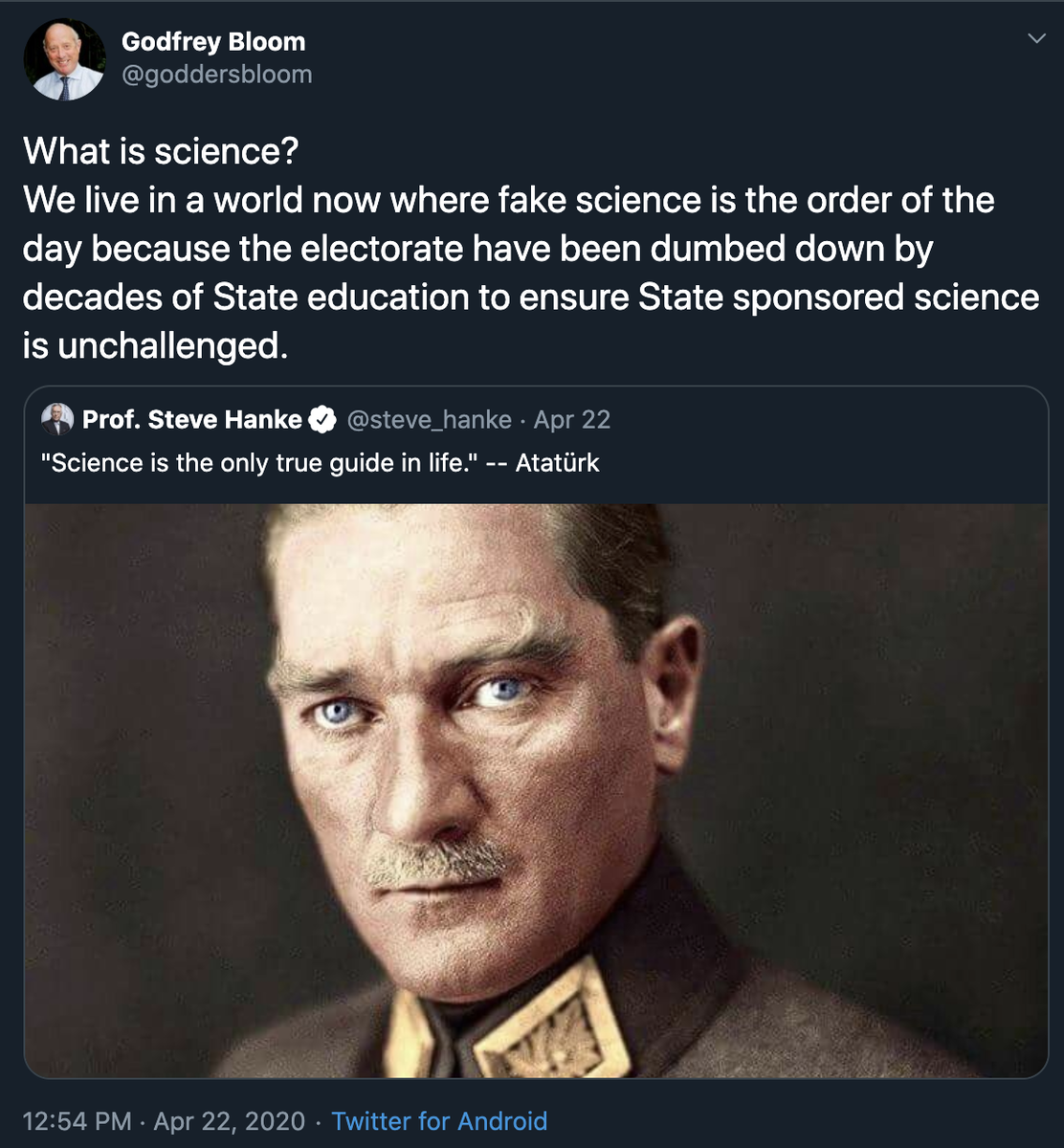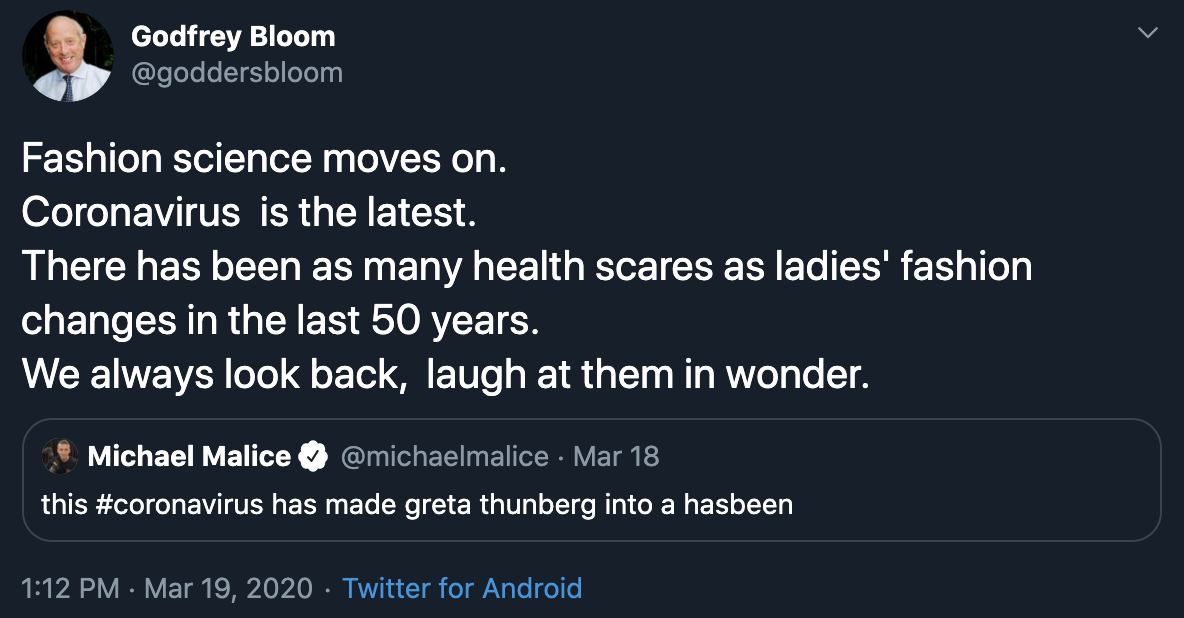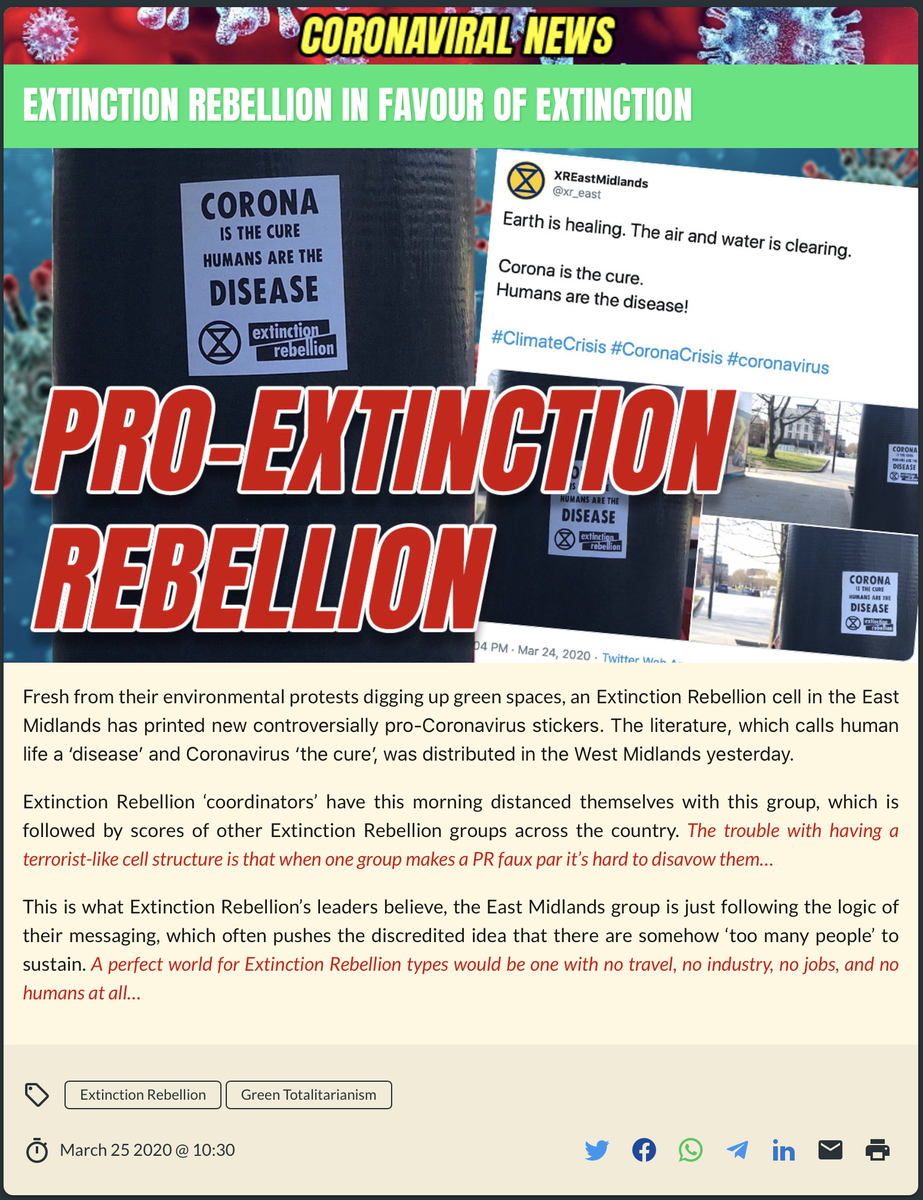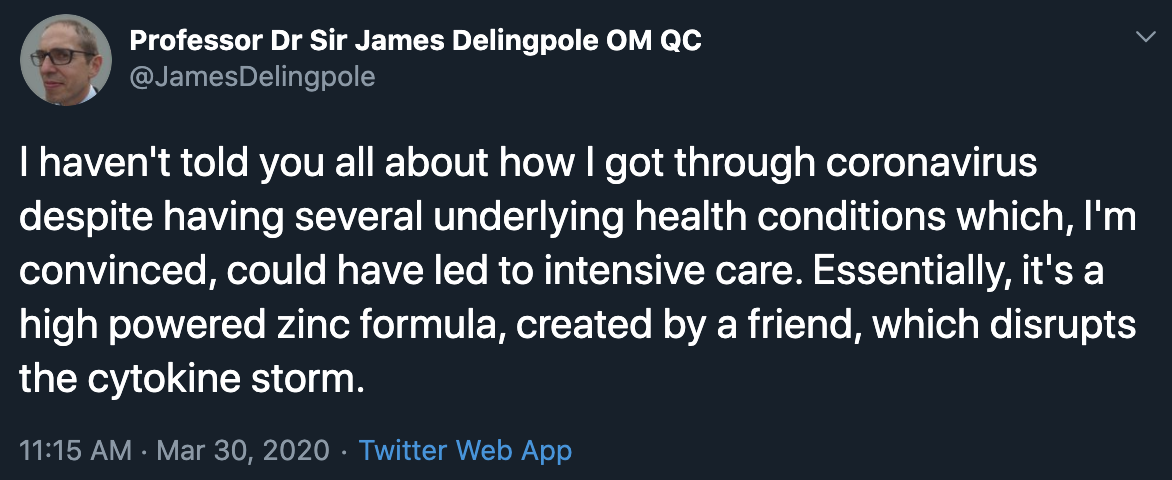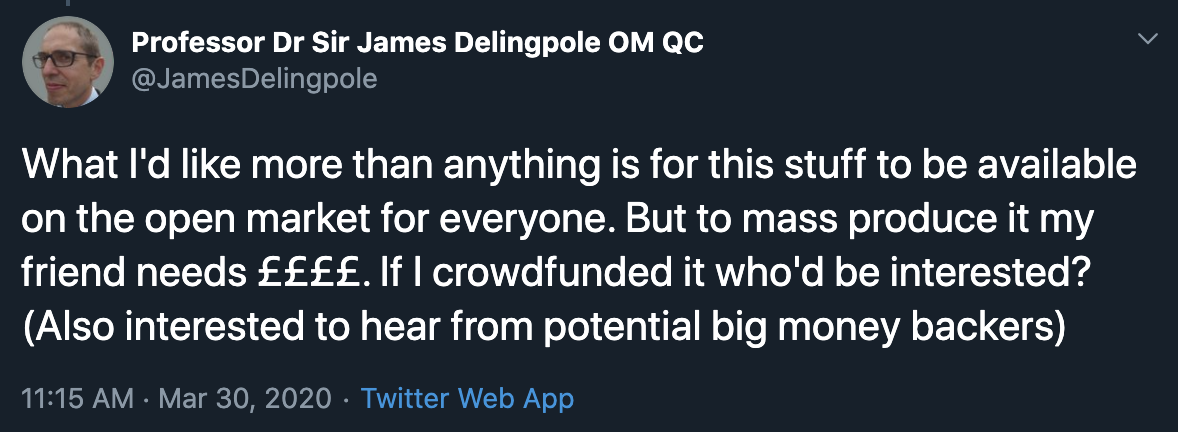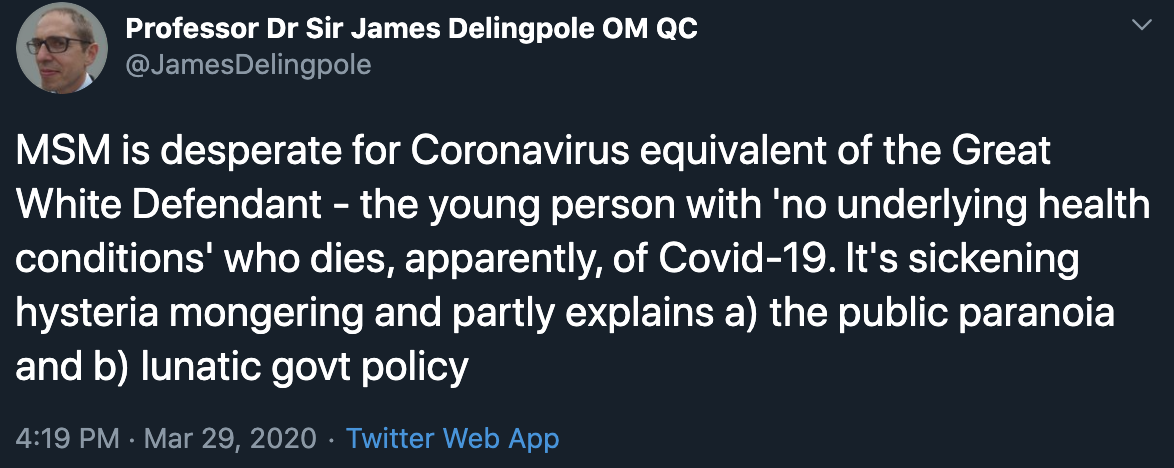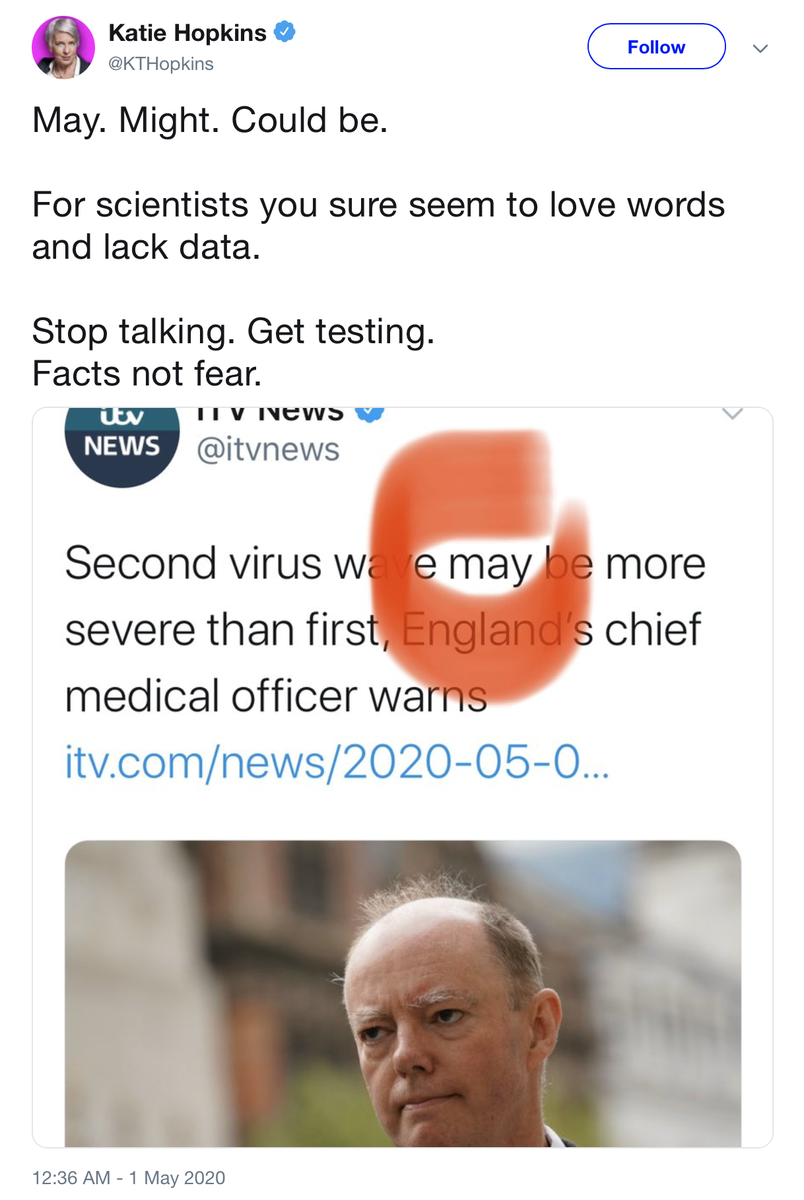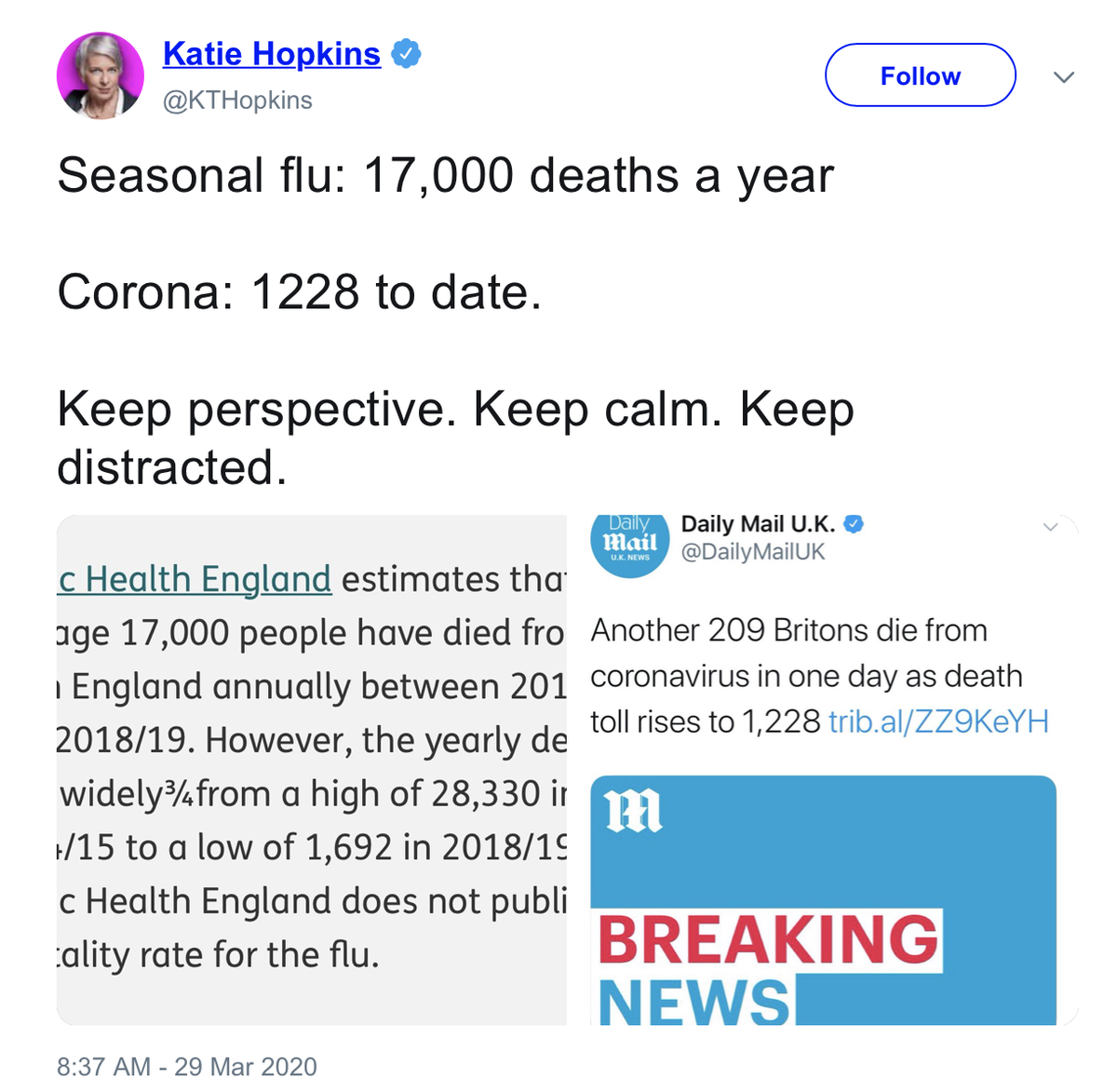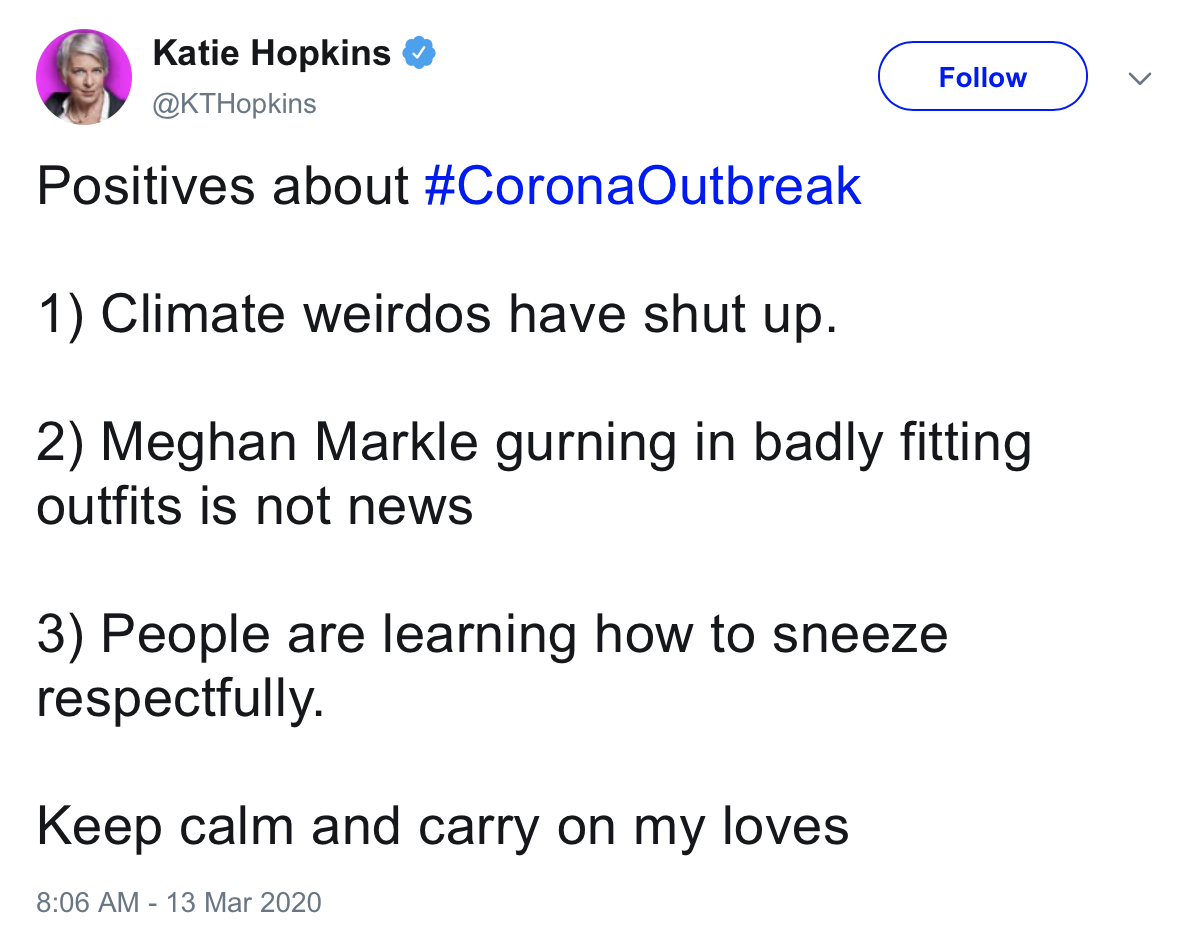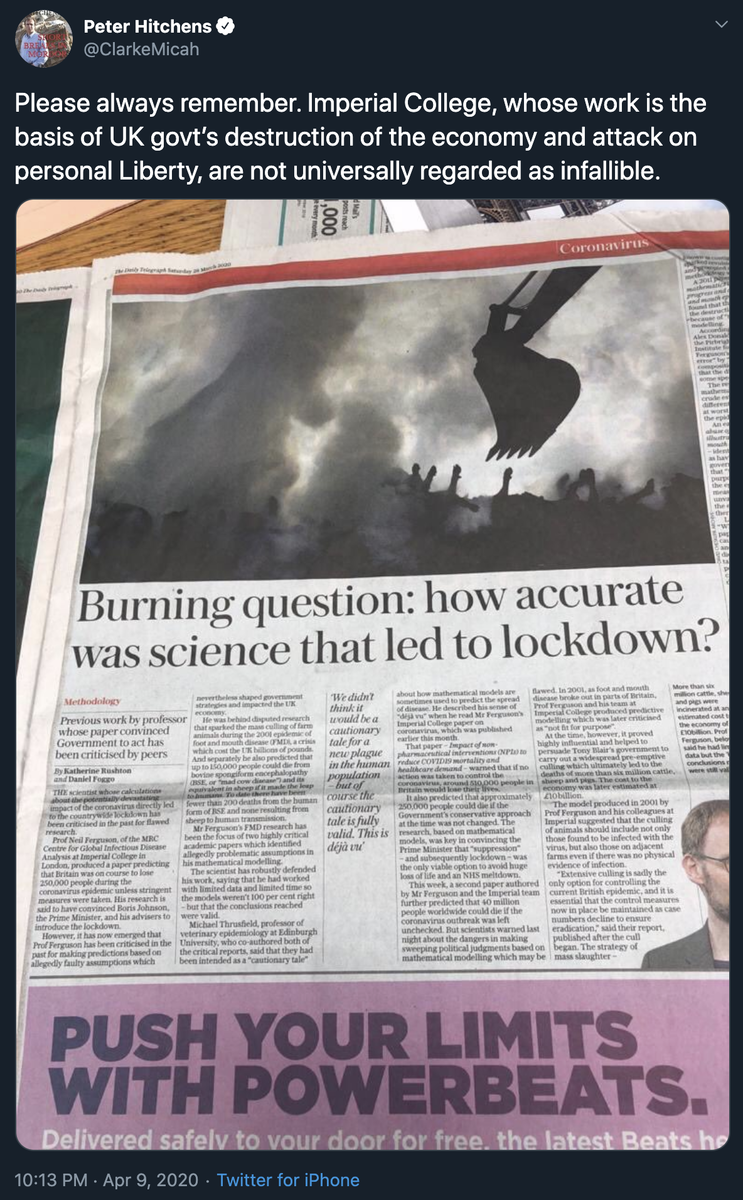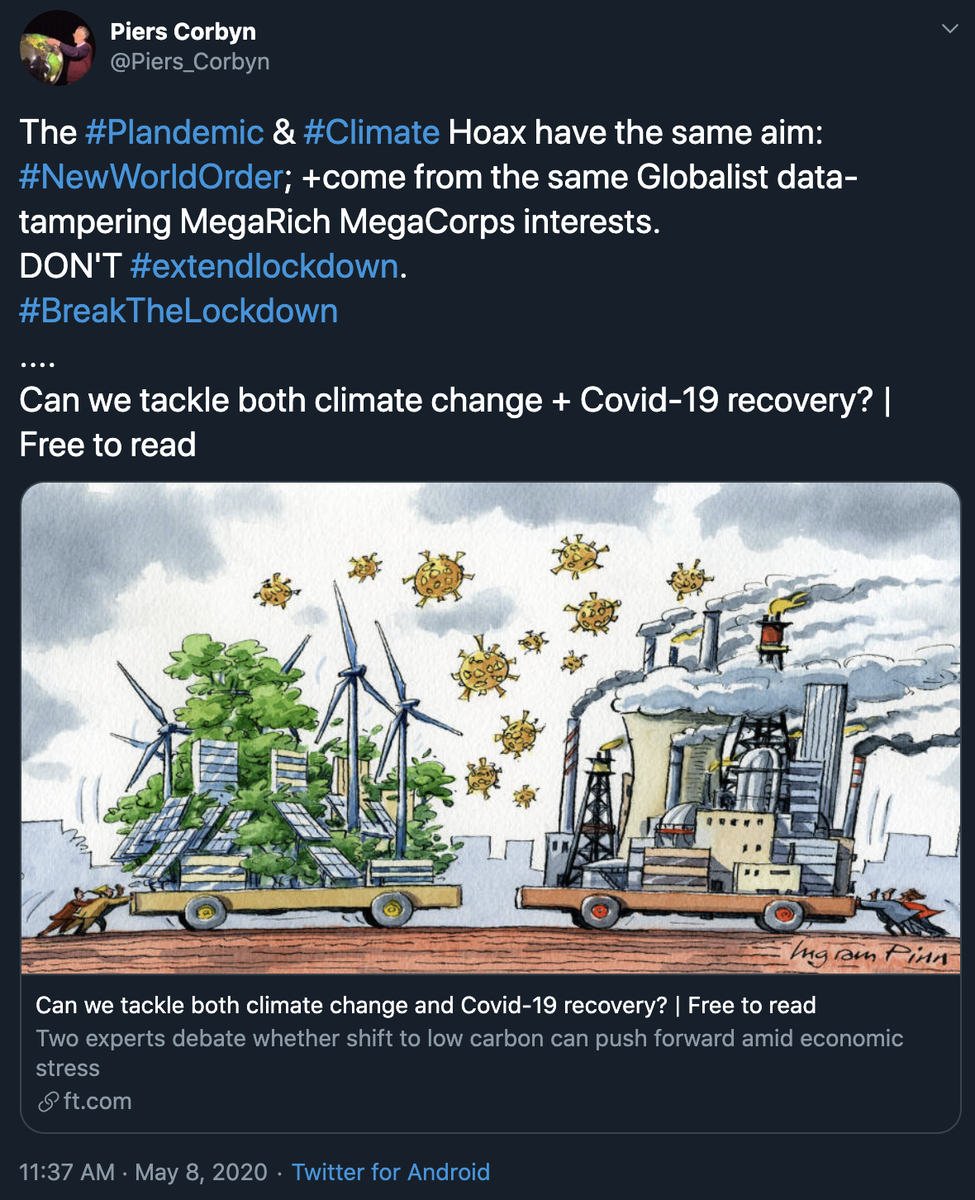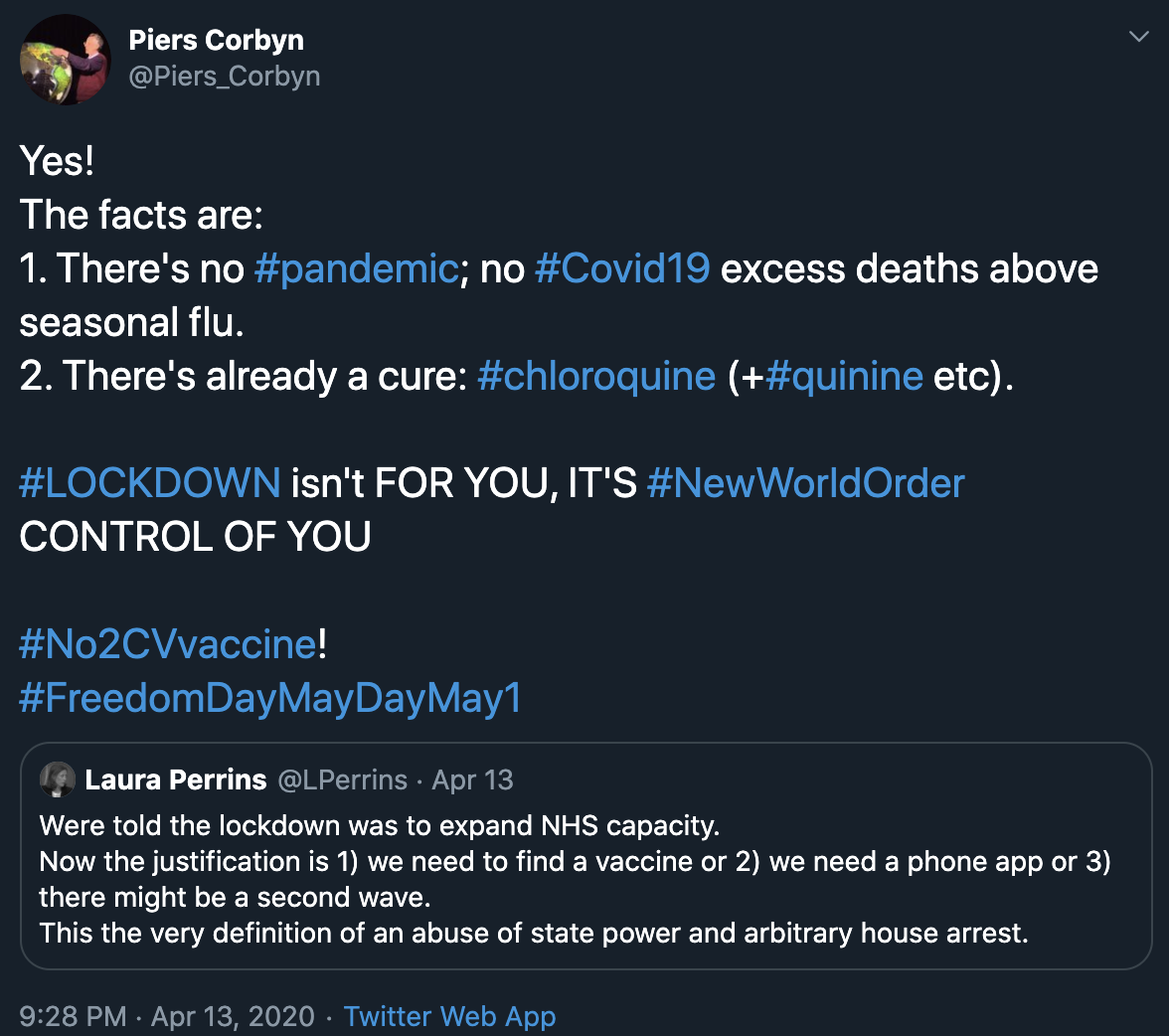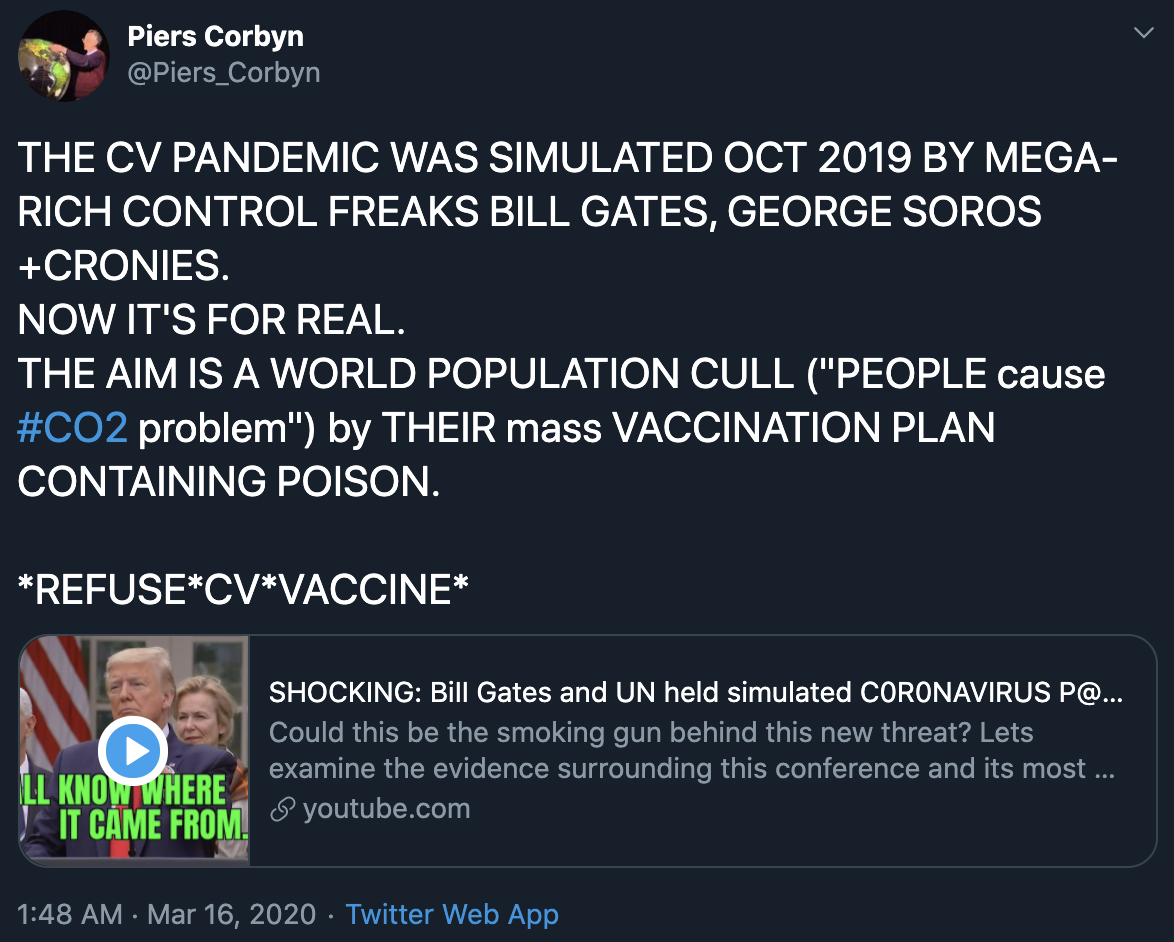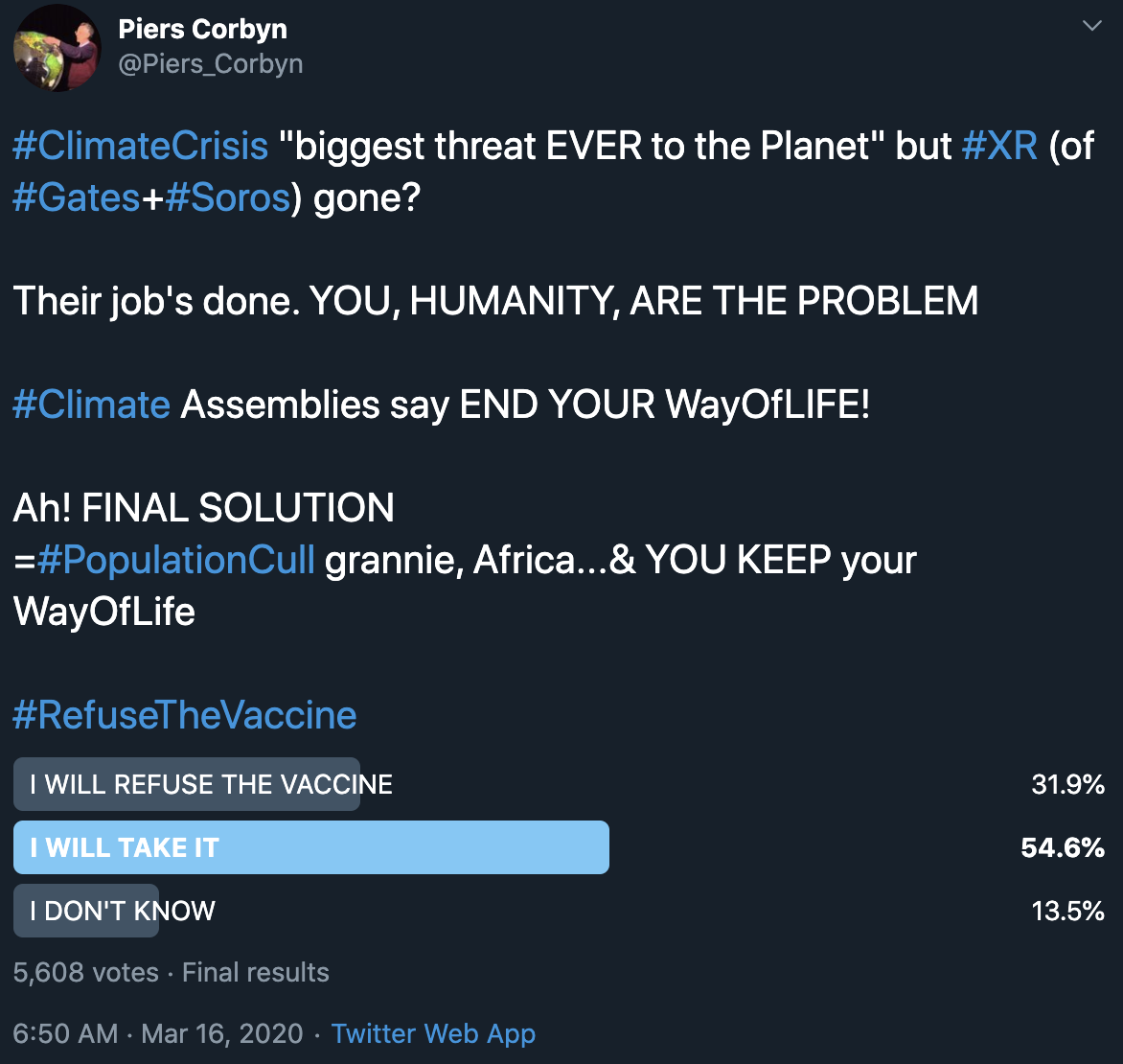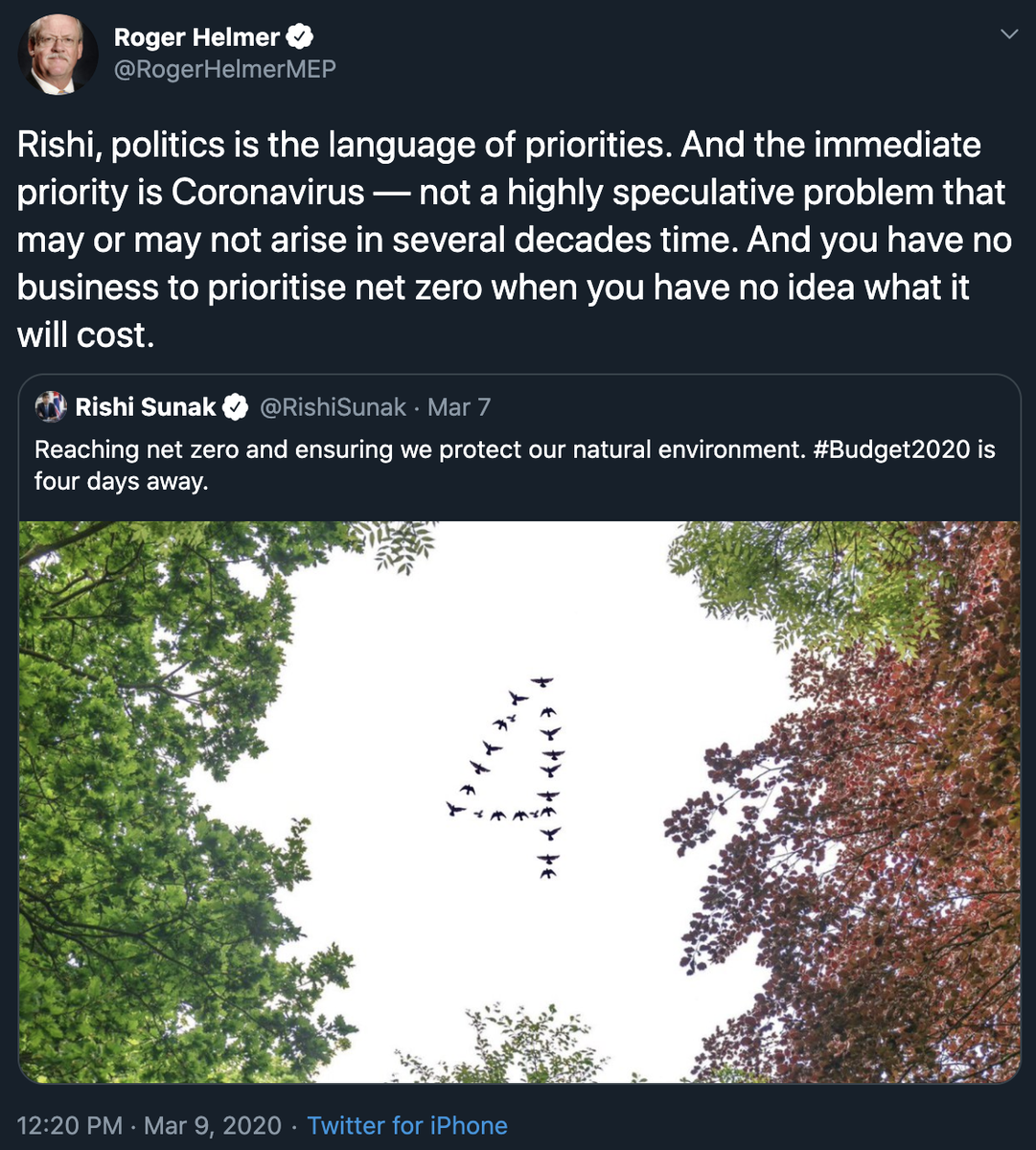The following UK-based individuals and groups have historically focused on denying or downplaying the risk of man-made global warming. In 2020, they have turned their attention to the COVID-19 pandemic, downplaying the severity of the coronavirus outbreak and sowing distrust in the response efforts of governments, scientists, and the medical community.
This information is excerpted from a larger body of evidence DeSmog has gathered on COVID denial.
Ann Widdecombe
“Ann Widdecombe slammed for claims coronavirus will be like AIDS – ‘not as devastating as feared’,” Jonathon Read in, New European, March 13
In a despicable newspaper column for the Express, former Brexit Party MEP Ann Widdecombe has claimed that coronavirus will be like AIDS — something “not as devastating as feared.”
In comments condemned by the LGBT+ community the Brexiteer used her newspaper column for the pro-Brexit newspaper to tell readers that she believed the public were taking concerns too far.
She wrote: “I’m all for sensible precautions but I cannot help feeling that we are going mad over coronavirus.”
The former ex-Tory minister said that “we need a sense of proportion,” before trying to use a series of outbreaks which have all killed to justify her lack of concern.
She said: “We need a sense of proportion in the face of the financial markets going into meltdown, aeroplanes being grounded and shops shutting their doors.”
And in baffling, unsubstantiated remarks, she continued: “We have had the scare of SARs, bird flu, Ebola and of course AIDS.
“None proved as devastating as feared and more people died of the flu than have died of coronavirus.”
Arron Banks
Tweet by @Arron_banks on April 24
Tweet by @Arron_banks on April 5
Daniel Hannan
“Alarmism, doom-mongering, panic – and the coronavirus. We are nowhere near a 1919-style catastrophe,” Conservative Home, February 19
I’m going to stick my neck out here. You’re unlikely to be killed by the coronavirus. Yes, the disease is unpleasant; and, yes, in some circumstances, it can cause complications that lead to fatalities. But it is unlikely to be as lethal as the more common forms of influenza that we take for granted, let alone as lethal as, say, stroke or heart disease. We are nowhere near a 1919-style global catastrophe.
[…]
Politicians, like most people, are bad at calculating risk, and almost every Minister would rather be accused of over-reacting to a threat than of having done too little. There is a similar bias, albeit a less pronounced one, among the various medical advisory bodies: Epidemics are what they exist for, and they wouldn’t be human if they didn’t have a subliminal desire to talk them up.
Global Warming Policy Foundation
“Costly Climate Policies Must Be Abandoned To Save Economy,” GWPF press release advertising GWPF paper, Rupert Darwall. “The Climate Noose, Business, Net Zero and the IPCC’s Anticapitalism,” GWPF, April 27
European governments have no choice but to abandon costly climate plans that are threatening to burden nations with huge costs and millions of job losses if they want a strong economic recovery from Covid-19 lockdowns. That’s according to a new report by Rupert Darwall, a former special adviser in the UK Treasury.
Taken from GWPF repost with graphic added from article originally: “UK Climate Assembly Calls Lockdown A ‘Test Run’ For Greener Lifestyles,” Laurie Goering, Reuters, April 19
Harry Wilkinson (GWPF head of policy). “We must not let green extremists exploit the Coronacrisis,” Free Market Conservatives, April 7
Already, environmentalists are applying “coronavision” to the climate change debate. A certain type of green activist welcomes the virus, seeing it as a sort of divine punishment for a civilisation that has lost its way. For most of human history, people have tended to view plagues and other natural disasters in much the same way.
[…]
There is no such thing as a zero-risk activity. Deciding what constitutes the riskier course of action is often not obvious and normally subject to our own prejudice. The objective is never to eliminate risk entirely.
For these reasons, Net Zero is looking more and more like the worst possible kind of insurance policy. We are planning to cripple our own economy in the pursuit of steep emissions reductions, all in the (hopefully unfounded) expectation that developing countries will do the same. How on earth will any of this protect us from the floods, droughts and hurricanes that will all inevitably happen, regardless of the severity of anthropogenic climate change?
[…]
The growing band of eco-fundamentalists are not invested in developing a rational response to climate change because they are far more interested in spreading fear. For them, COVID-19 is but a minor precursor to “catastrophic climate breakdown,” albeit one that might engender a necessary societal transformation.
[…]
Make no mistake, environmental activists will seek to exploit the fear and political instability of this crisis to try and extend the precautionary principle indefinitely. It would be doubly tragic if this pandemic is also the harbinger of the Big Green State.
Benny Peiser (GWPF director) and Andrew Montford (GWPF deputy director). “Coronavirus Lessons From the Asteroid That Didn’t Hit Earth,” WSJ, April 1
The coronavirus pandemic has dramatically demonstrated the limits of scientific modeling to predict the future.
[…]
Academic studies often suffer from a lack of quality control, as peer review is usually brief and cursory. In normal times this doesn’t matter much, but it’s different when studies find their way into the policy world. In the current emergency, it is vital to check that the epidemiological models have been correctly assembled and that there are no inadvertent mistakes.
Godfrey Bloom
Tweet by @goddersbloom on April 24
Tweet by @goddersbloom on April 22
Tweet by @goddersbloom on March 19
Guido Fawkes
“Extinction Rebellion in favour of extinction,” blog post on March 25
James Delingpole
“Trump shouldn’t wear a mask,” Spectator USA, July 21
But now that the virus has begun to retreat — as viruses tend to do in the summer months — and the number of deaths has tumbled almost to nothing, the rationale for imposing masks is more nonsensical still. It’s like surrendering your arms to an enemy you’ve just beaten in battle: again, something liberals might find appealing, but which all conservatives ought to find incomprehensible.
“Boris Muzzles Britain’s Bulldogs; Poodles Yap Their Approval,” Breitbart, July 15
UK Prime Minister Boris Johnson has decided to make muzzles — aka masks; aka face nappies — compulsory for everyone who wants to go shopping.
[…]
It’s so obvious why forcing us to wear masks is a bad thing that I really shouldn’t need to spell it out. But here, for the thickos at the back, are a few hints.
First, it’s an almost entirely pointless gesture. As wind turbines are to climate change, so face masks are to coronavirus: they’re ugly and intrusive; they’re a very public display of obeisance to what is essentially a religious rather than a scientific belief system; they do nothing to cure the problem they’re supposed to be curing.
[…]
Not only will masks almost certainly not work, but even if they did, why now? The peak of the virus has long since passed. We are now in summer, when flu-like viruses are naturally killed off anyway.
[…]
Clearly, then, the reasons for introducing this mask ruling have nothing to do with sound science. Rather, this is a political gesture borne of the Boris administration’s desperation to get Britain up and running again after months of lockdown indolence. So successful has UK government propaganda been in persuading the population that Covid 19 is almost unprecedentedly dangerous that a cowed and frit populace are now proving extremely reluctant to leave their homes.
[…]
Up until now, there has been an uneasy but effective truce between Lockdown Sceptics like myself and Covid bedwetters. They get to scuttle around wearing masks, looking frightened, jumping whenever anyone gets too close, but slowly inuring themselves to the normal world after months in Covid paranoia fantasy land. I, and my ilk, get brush past them contemptuously, thinking that they are babyish and silly but not minding too much because at least we’re not having to wear those stupid masks ourselves.
Now, those of us on the sceptical side no longer have that liberty. And it makes us righteously angry because we know that this massive imposition on our freedom has nothing to do with health and safety but has everything to do with an overweening state flexing its muscles and getting far too comfortable with its new authoritarian powers.
“Britain Unleashes a Green New Deal to Kill What’s Left of the Economy,” Breitbart, June 3
UK Chancellor Rishi Sunak has found an ingenious scheme to ensure that Britain never recovers from the economic damage caused by the lockdown: a “green industrial revolution.”
[…]
A green industrial revolution is a bit like the original industrial revolution, except for one or two crucial differences: instead of boosting prosperity, creating jobs and stimulating economic growth, it does the exact opposite.
“‘Build Back Better’ – The Latest Code Phrase for Green Global Tyranny,” Breitbart, May 31
“Build back better” is actually a United Nations invented phrase and what it actually means is more world government, more green taxes and regulation, more expensive energy, more identity politics, more corporatism — and, of course, less freedom and entrepreneurialism.
[…]
If you thought the nightmare was going to end once the coronavirus scare passed, think again: it’s only just beginning.
The greens and the globalists aren’t about to let a crisis going to waste. This is the moment they have been waiting for.
“Earth Day 2020 — Greens Celebrate Coronavirus Lockdown as Blueprint for New World Order,”Breitbart, April 22
Expect to hear a lot more of this environmental propaganda in the coming weeks and months: green activists and their celebrity useful idiots treating the Chinese Coronavirus pandemic not as a crisis but an opportunity to be exploited.
[…]
The global green movement and its many celebrity/high-level political supporters are treating the chaos, fear and increased authoritarianism generated by Chinese coronavirus as a once-in-a-lifetime opportunity to advance the kind of green, one-world-government totalitarianism which no populace anywhere in the West would have been prepared to tolerate in normal times.
[…]
Green activists and their celebrity supporters actually want us to stay locked forever in a world of rationing, deprivation and immiseration. But while the rules will apply to us it won’t necessarily apply to them.
“‘Trust the Experts on Coronavirus’. Sure. Which Experts?” Breitbart, April 9
No offence to the University of Washington but when I read the phrase “modelling by researchers” I know we are operating in the realms of purest fantasy.
That’s because I’m a climate sceptic and I’ve seen it all before.
The fact that computer models are unreliable — often based on the junkiest of junk data inputs; programmed with the shonkiest and most politically motivated algorithms, put together by people you wouldn’t trust to run a bath let alone dictate government policy — is the single most important thing you need to know about the entire global warming/climate change scam. This was the basis of the 2009 Climategate scandal: that the scientists were pushing a radical, disruptive, economically damaging agenda without any solid supporting evidence.
Everyone on the climate sceptical side of the argument knows this: the models are deeply suspect; the people behind them third rate; the scientific establishment pushing them arrogant, intellectually and morally corrupt, driven by politics, money and power not by honest science.
That’s why climate sceptics like myself have often been much quicker to understand what the rest of the world is only slowly starting to grasp: that our governments’ response to coronavirus has been a wild overreaction; that the cure is in danger of causing much, much more damage than the disease itself.
[…]
Trust the experts, the politicians tell us.
But we don’t know these experts. We have no idea whether or not we can trust them or their models. And we certainly never voted for any of them — nor, unfortunately, do we have the ability to boot them out of office when they fail us.
Tweet by @JamesDelingpole on March 30
Tweet by @JamesDelngpole on March 29
“Wu flu notes,” Spectator Australia, March 28
Many of you will be wondering what it’s like to get the coronavirus — aka Wu Flu, Covid-19, etc. Well I can tell you: it feels bloody great. Not the actual flu part, obviously — that part is horrible. I mean the bit afterwards once it’s all over and you realise with gratitude not only that you are still alive but also — yay! — you have a degree of immunity to this plague that is infecting and terrifying everybody else around you.
I don’t mean to play down the seriousness of Coronavirus. For an unlucky minority it means a stint in hospital. And for the unluckiest it means the kind of slow lingering death you wouldn’t wish on anyone, let alone your beloved elderly relatives. But the fact remains that for most of us, the worst thing about Coronavirus will not be the disease itself but the fear of the unknown leading up to your (almost inevitable) infection.
[…]
How bad was it? Bad enough to feel rotten and irritable and sorry for myself; not so bad that I couldn’t carry on working. I still wrote my articles, though they took me twice as long as usual. And I didn’t cancel any of my engagements, such as the debate at Durham University where I had to speak for the motion ‘This House believes in patriotism.’ I wasn’t on top form, but my side still won – quite an achievement given that students are so lefty. Afterwards, my children — Boy and Girl — who are both at the university, dragged their sick reluctant father to various parties. It’s possible I infected lots of undergraduates. Or maybe not.
“Fear of the Coronavirus Is Worse Than the Disease,” Breitbart, March 27
I had my own brush with Covid-19 at the beginning of February. Everyone’s experience is different, of course, but I’d say that as a rule the fear it engenders is worse than the disease itself.
Before you get it, it’s quite nerve-wracking. “Will I be one of the unlucky ones who needs hospital treatment? What if I get it really badly and there are no ventilators?”
Afterwards you feel more relaxed, smug almost, because you’ve developed a degree of immunity.
“Eco-Fascists Deny Responsibility For ‘Corona Is the Cure; Humans are the Disease’ Signs,” Breitbart, March 25
The eco-fascists are showing their true face in the Coronavirus pandemic. Activists claiming to be from Extinction Rebellion have put up posters exulting in the loss of human life.
[…]
Environmentalists, you may suspect, are the very last people we should be heeding in this coronavirus pandemic. Not only are they partly responsible for the misdirection of scientific resources which has left us so woefully ill-prepared for the disease — but a worrying proportion of them actually welcome this plague because they see it as Gaia’s revenge on evil mankind.
Jeremy Clarkson
“Scientists don’t agree on what to do about coronavirus —f at least it shows they’re thinking properly,” Sun, April 24
Some say 70 is the age where you most need to worry. Some say it’s 60.
Some say the virus will be wiped out by summer weather. Others say it won’t.
And meanwhile, everyone is sitting at home thinking, “Can you lot make up your bloody minds.”
But that’s the point of science. There should never be a consensus.
Everything should constantly move as new discoveries are made. E=mc2 until someone proves that it doesn’t.
[…]
Today, we are told that all of science is agreed on global warming.
We hear it IS happening and it IS our fault. No argument is allowed.
History has taught us that this is dangerous.
“My old age is cancelled, society’s about to collapse and the green just can’t stop smiling,” Times, March 22
So, the canals in Venice are no longer the colour of a Cadbury Fruit & Nut bar. They are gin-clear. So see-through, in fact, that if there were any visitors to the city, they’d be able to see hundreds of fish swimming about while blinking frantically as they look at the sun and think: “What the bloody hell is that?”
This is great news for the hardcore environmentalists, who will read this and say to themselves: “Ooh, that’s lovely. Wouldn’t it be fantastic if the water stayed that way for ever?”
[…]
And on the roads of many cities around the world, there are no cars. This is what our eco friends have been dreaming about. To them, Utopia is being born right before our eyes.
[…]
Of course, we could explain to our idiotic green friends that thousands and thousands of people are dying. But let us not forget that eco-ists have been calling for a Thanos-level cut in the world’s population for years. In 2018, their spiritual leader, Sir Attenborough, said “our population growth has to come to an end”.
So, a virus that kills 10% or 20% of us? That’s something the greens would welcome. Especially if it’s essentially a cull of the old and the sick.
This coronavirus business, then, is their idea of a wet dream. Fewer people, no travel, no pollution and, as a smear of icing on the cake, no commerce.
Katie Hopkins
“Face Masks are a training device for a vaccine,” YouTube video uploaded by Katie Hopkins OFFICIAL on July 22
Katie Hopkins [00:01:56] And what do you think these things are? These masks that they’re forcing us to wear now after the coronavirus outbreak is largely over. Why now? Well, for me, this is a training device. This is training you to believe that you need something to protect you from corona when you’re out and about. That you need something else. It’s training you to accept a state vaccine. Because the simple truth is, if you do not have any underlying health conditions, if you are not morbidly obese, and if you are under the age of 80, statistically, you can get corona and be just fine. I don’t believe you need one of these. And I believe this is a training device to foist a vaccine upon you.
Tweet by @KTHopkins (account has since been banned – tweet archived) on May 1
Tweet by @KTHopkins (account has since been banned – tweet archived) on March 29
Tweet by @KTHopkins (account has since been banned – tweet archived) on March 13
New Culture Forum
“What Impact Will the Covid-19 Crisis Have on the Green / Environmental Movement?” New Culture Forum video featuring, Global Warming Policy Foundation director Benny Peiser, anti-wind farm activist James Delingpole, and Global Cyber Academy Chief Executive Richard Bingley, June 21
Peter Whittle: [00:01:15] I want to start really, I would start with you, actually, James, if I may. Are we going to see more or less of Greta Thunberg, do you think, in the future?
James Delingpole: [00:01:24] It’s an interesting question. Let me answer it in a different way. I think there are two possible outcomes of this Coronavirus crisis. One is – and this is the upside, this is what I’m hoping and praying for — is that it will be increasingly apparent that governments do not have any spare cash to spend on green boondoggles. The only reason, I mean, this is something that Warren Buffet a point Warren Buffett made years ago, it’s known to anyone with a functioning brain. The only reason that the renewables industry, for example, can survive is through state subsidy, through government intervention, unless, unless people are compelled to use renewable energy, which, of course, is the darling of the green movement, then people will not pay for green energy – okay. So clearly now that the government’s coffers have been supposedly exhausted by spending for this crisis, you think about all the money that Rishi Sunak has allocated to enable people to sit in their gardens, improving their suntans. There’s not going to be really much left for this net zero project. We need recovery. And the way to economic recovery is not to dump more and more taxes and regulations and expensive energy on the economy. So that’s the happy answer.
[00:03:02] The unhappy answer is you, in a way, answered it yourself with your introduction, which is that lots of people are looking at looking outside their windows and thinking, hey, the birds seem to be chirping more cheerily. This this is how are post Covid-19 world will look. It’s a greener world and we need to do more, we need to double down. And you see this happening already actually to a degree. You see, for example, that Grant Shapps, while there are no MP’s in the Commons to oppose him, he’s coming up with all these measures, like all these extra cycle lanes and stuff. You see, it’s been happening in Italy as well, that Milan, I think, has taken it upon itself to turn to get rid of all of these roads and turn them into bicycle routes. This is, this is dangerous. And this is, I think, is slightly the more likely outcome, I fear.
Peter Whittle: [00:04:07] Would you agree with that Benny? Do you think that that is the likely outcome?
Benny Peiser: [00:04:11] By and large, yes, there is, of course, the issue of people avoiding public transport altogether and going back to work in cars. So, what you’ve seen, for instance, in China is a 50 percent increase in car traffic in the big city simply because people are afraid of using public transport. They’re not going on their bikes. I can tell you that that age of cycling in China when they were dead poor is over. And they’re not going back to bicycles. They want cars, modern cars. The bigger, the better. That’s what’s going to happen in most countries outside of Europe. The Europeans will go down the green route because that is the dominant ideology today. Some things will crash like renewable energy. Some things will work. A lot of things will become greener simply because, a, people want to live in a cleaner world, and B, because very often cleaner means also more efficient and very often can be done in an economic way that doesn’t harm people or the economy. But I don’t see any significant change in the short term on the green agenda and the green ideology that most parties in Europe have adopted.
[…]
[00:15:15] The issue is whether the international community is actually doing something about CO2 emissions. And the reality is that while in most Western countries, emissions have basically stabilized over the last 10, 20 years, most emissions now come from the developing world. And they don’t really care about this issue. So there is not this kind of international agreement that we all have to do something about CO2 emissions. The reality is CO2 emissions are rising mainly because most of the world outside the western world is prioritizing economic growth. They don’t care about coal or gas or oil. They want just to develop as fast as they can, raise as many people out of poverty as they can.
[…]
[00:17:53] And Europe is shackling itself by policies that are making industries less competitive, making energy more costly, making life more difficult for families. I mean, if green energy, were, you know, as cheap as people claim, we wouldn’t have a problem.
James Delingpole: [00:22:26] The public has been effectively brainwashed by the government’s nudge Department into thinking that Coronavirus is much, much deadlier than it is. In fact, it’s I think increasingly it’s going to become evident that it’s no worse than bad seasonal flu, that we massively overreacted. And yet if you went out into people’s living rooms now and ask them this, they’d say, “oh, no, we need we need to be very cautious”. It’s the same with the Green Movement, which, by the way, is with climate change, which, like Covid-19, is a scare generated by propaganda and computer models. And ultimately, there is going to be a wake-up moment. There’s going to be a wake-up moment with Covid-19. There’s going to be a wake-up moment with this greenery because there is no evidence to support all these measures that are being taken by governments to deal with this. And it was it was masked in times of prosperity, people had other things to worry about. Now that money is going to be… the economy is increasingly the focus of people’s lives. I think it’s going to be much, much harder for green propagandists to do their work.
[…]
[00:29:37] The reason that we’ve got wind turbines disfiguring the countryside all over Europe is because ultimately people are given landowners are given massive subsidies to put these monstrosities on their land. Where do those subsidies come from? They don’t come from a magic money tree. They ultimately come out of the pockets of energy users. And that wouldn’t have been an issue necessarily before Covid-19. But I think it’s going to concentrate people’s minds. And maybe there is an upside to Covid-19. Maybe that it will be the kick in the ass that the world needs to realize that it’s been sold a pup by vested interests of this last 30 years or so. And that actually you can look after the planet without wanting to ruin the countryside with wind turbines.
[…]
[00:33:16] One of the other less pleasant side effects of this crisis is it’s demonstrated how easily governments can just completely act according to their own, you know, their own whims. They’ve been able to take our freedoms without pretty much so much as a by your leave. We’ve almost become… we grew up thinking we were a free country and we’ve become pretty much communist China in the space of, what, two months? And there haven’t been riots. I went to a demo in Hyde Park a couple of weeks ago. There were 300 of us there protesting against the biggest assault on civil liberties since it… in over 300 years. 300 people came up to protest against that. So that argues against my earlier optimism that maybe governments can just railroad through these green policies. Maybe net zero will go ahead. And there’s no opposition. I mean, Labour aren’t opposing the Conservatives on this, the Lib Dems aren’t opposing this, the Green Party aren’t. Where is the opposition to this lunacy?
Benny Peiser: [00:35:18] Governments in cahoots with scientists have scared the living daylights out of people. And in a climate of fear and hysteria, anything is possible. A people will react animalistic almost. They will basically do the most cruel things you can imagine in periods of mass hysteria. That’s the history of humankind.
Peter Whittle: [00:35:48] That’s what you think this is Benny? You think this is mass hysteria?
Benny Peiser: [00:35:53] No doubt. I mean, you see it 24/7 on the news. People are scared to death. And if you are scared to death, you will do anything the government will ask you to do. You will not go to a demonstration or do anything, and if you dare go out, your neighbour will tell the police and we’ll say this guy needs to be imprisoned because he met his daughter for the second time.
[…]
[00:36:36] This mentality you find all over the world. There is no country apart from the ones where you don’t have the lockdown… kind of draconian lockdown, where people have responded differently. Most people have completely adhered to the advice and the rules and the regulations. And that, unfortunately, is the world we live in today, which makes it much easier for governments to scare people into political direction. And I mean, we have the whole debate about censorship, which I think will get much worse, all in the name of, you know, “you can’t say this, it’s false, it’s misleading”. And so, it’s dangerous to say things nowadays because it’s all about, you know, saving the planet or saving lives. And in that climate of mass hysteria and panic and anxiety, this is how human beings react. There is no way out. And the only way out is to give people a more realistic picture of the risk we face. And I agree that there is obviously a risk of this virus, but it has been completely exaggerated. And we now realize that the overall death toll from this pandemic will be much, much lower than most models predicted, much lower. I mean, significantly, though, I think we have 350,000 people so far recorded as having been killed by the Covid-19 virus. The World Health Organization estimates that on average, every year 250,000 to 500,000 people die from influenza. So, it’s not the kind of Spanish flu type of pandemic. And it is a very severe virus, but far below all the kind of doomsday predictions we heard initially.
Nigel Farage
“The Establishment talks tough about the lockdown but stays silent on illegal immigration,” Telegraph, April 27
Yet while the vast majority of us would always do what we can to stop the spread of this ghastly virus anyway, I have spoken to an increasing number of people who wonder why they should sacrifice their normal life when our borders remain open and our authorities fail to run basic health checks or quarantine on new arrivals into our airports. Indeed, when you think about just how relaxed the UK government has been with regard to people arriving on our shores since this situation unfolded, isn’t the very term “lockdown” a misnomer? It’s more like a lock-up, in that those already resident in this country have been subjected to severe restrictions while others have been free to turn up from all corners of the world without any inquiries into their health or their plans while here.
“Trump’s Right. The WHO Is Not Fit for Purpose,” Newsweek, April 16
Time after time, Tedros [Adhanom] has made statements urging other countries not to close their borders to Chinese visitors and has glorified China for setting “a new standard on outbreak control”. Yet it now seems to me that the WHO has, through such sheer imbecilic irresponsibility, actively helped to spread this disease around the world.
Trump is right — neither Tedros nor the WHO is fit for purpose. It’s just a shame that Trump didn’t go further by calling for the abolition of the WHO. It cannot convincingly claim to be politically neutral and its policy platform appears to be up for sale to the highest bidder. For a global health outfit, it has some terribly unhealthy habits.
“The Virus is Yet Another Reason to Rethink the West’s Relationship With China,” Newsweek, March 18
I believe that attention should now turn to China. When President Trump has talked about the “Chinese virus” (others have called it the “Wuhan Virus”) he has been met with waves of criticism and accusations of racism. In the House of Commons, the shadow foreign secretary Emily Thornberry even said of Trump: “Now he’s calling it the foreign virus, blaming it on Europe for its spread and today blaming China.” I hate to break it to Ms Thornberry, but Trump is right. And it is time we all challenged China.
[…]
Isn’t it time we in the West had a grown-up conversation about China, beginning with the truth that several layers of the regime — from sanitary inspectors to secret police — are responsible for this nightmare? Isn’t this the moment when we need to remind ourselves that China is a deeply unpleasant communist dictatorship, a surveillance society that executes thousands of its own people every year? We all need to examine our attitude to the Beijing regime. For too long, no global leader dared to say a word against it, much less adopt a remotely conditional approach to engaging with the regime. The priorities of globalization have been deemed far too important for human rights to even be considered.
[…]
Similarly, the Green lobby is happy to inflict chaos on our society any time it chooses. Groups like Extinction Rebellion have brought British cities to a standstill. Yet they rarely, if ever, speak out against China, which is responsible for most of the world’s pollution. I find this contradiction extraordinary.
Peter Hitchens
“Face masks turn us into voiceless submissives – and it’s not science forcing us to wear them, it’s politics,” Peter Hitchens’s blog on Mail Online, July 19
Now it presumes to tell us what to wear. And what it wants us to wear is a soggy cloth muzzle, a face-nappy that turns its wearer from a normal human into a mumbling, mouthless submissive.
And this, it seems, is popular. Is there nothing the modern British people will not put up with? Britain’s muzzle consumption is now so high that six months from now there will be reports of dolphins and whales floundering about in an ocean made sticky by millions of gallons of hand-sanitiser, as they choke on congealed clumps of used muzzles.
These items are set to become the new plastic bags. Why is this frenzy taking place?
[…]
The truth is that the muzzle policy is all about power and fear.
The Government began its wild, disproportionate shutdown of the country by spreading fear of a devastating plague that would destroy the NHS and kill untold thousands.
Now, as many people find that Covid-19 is, in fact, nothing of the kind, new ways have to be found to keep up the alarm levels.
[…]
People such as me, who think Ministers’ response to the virus is wildly out of proportion, have until now been able to live amid the propaganda, trying to stay sane.
But the muzzle is a badge of subservience and submission. Anyone who dons it publicly is agreeing to the Government’s crazy assessment of the level of danger.
“The new authoritarian State’s dream has come true thanks to the repulsive word ‘lockdown’: they’ve made us all prisoners,” Mail Online, May 23
I think I now understand why this period has come to be known by the repulsive word ‘lockdown’, an American term which describes the punishment of rioting convicts in a penitentiary, by confining them in their cells for long periods.
I hate this word, because it does not seem to me to be fitting to describe free people in a free country.
But we are no longer such people, or such a country. We have become muzzled, mouthless, voiceless, humiliated, regimented prisoners, shuffling about at the command of others, stopping when told to stop, moving when told to move, shouted at by jacks-in-office against whom we have no appeal.
We are learning, during this induction period, to do what we are told and to become obedient, servile citizens of a new authoritarian State. We are unlearning the old rules of freedom.
All the things we used to take for granted now belong to the State, which can hand them back to us if we are good, and yank them away from us again if we are bad, or if it can think of an excuse.
Tweet by @ClarkeMicah on April 9
“Piers Morgan and Peter Hitchens Clash over the Coronavirus Lockdown,” YouTube video via Good Morning Britain featuring an interview between Piers Morgan and Peter Hitchens, March 31
On lockdowns:
Peter Hitchens [00:03:37] And it’s driven by hysteria, and in fact, unreason. No-one can explain to me or give me any evidence at all that confining the entire population to their homes will actually save a single life, there isn’t any such evidence. If you look at all the places where the coronavirus has broken out, it’s been dealt with in many different ways by many different countries. There is no pattern whatsoever to suggest that this method will work.
[…]
Peter Hitchens [00:07:33] It’s not really the point about whether this is the biggest crisis we’ve ever had. Each year in this country over the past recent years, 17,000 people have died from influenza. In one recent year, this is the 2014-2015 season, 28,330 people died of influenza in England alone. This is not unprecedented as a winter crisis in the National Health Service…
“There’s powerful evidence this Great Panic is foolish, yet our freedom is still broken and our economy crippled,” Mail Online, March 28
…several powerful pieces of evidence have come to light, suggesting that the Great Panic is foolish and wrong.
[…]
The vast majority develop very mild symptoms or none at all. Millions may already have had it.
[…]
It is very hard to link outcome clearly with policy. Even Hong Kong and Singapore, similar city states which had a similar outcome, adopted different policies. We might do well not to assume that things work, just because we favour them.
It is more likely that the panic-mongers, having got their way by spreading alarm and frightening the Prime Minister, are now trying to get us to forget how ludicrous their original claims were. But first let me issue another warning. If the Government do decide to release us from mass arrest, they will say, as Prof Ferguson is doing, that this is because their repressive economy-wrecking measures worked.
“Yes, coronavirus poses a risk — but our response to it is not intelligent or useful. Britain is infected…by a bad case of madness,” Mail Online, March 14
But I am quite sure that many of the current panic measures do far more harm than good. They create the idea that we are in the midst of a terrifying plague that will kill us all, when the truth — though disturbing — is far less frightening.
Piers Corbyn
Tweet by @Piers_Corbyn on May 8
Mentioned by Tony Diver in “Anti-lockdown protest led by Jeremy Corbyn’s brother Piers is shut down by police,” Telegraph, April 25
An anti-lockdown protest led by Jeremy Corbyn’s brother was broken up by police on Saturday after some activists breached social distancing guidelines.
Piers Corbyn led a rally in Glastonbury, Somerset, against the Government’s coronavirus lockdown, which he said was causing more people to die.
A video posted online shows Mr Corbyn, the 73-year-old brother of the former Labour leader, giving a speech.
Speaking to The Telegraph, Mr Corbyn said: “We want to end the lockdown to get the NHS back to doing its job of helping the most vulnerable people who are locked up in care homes or staying at home going mad.
“The lockdown is achieving the opposite of what it was intended to achieve.”
Mr Corbyn claimed around 100 people had attended the event.
Tweet by @Piers_Corbyn on April 17
Tweet by @Piers_Corbyn on April 13
Tweets by @Piers_Corbyn on March 16
Tweet by @Piers_Corbyn on March 16
Roger Helmer
Tweet by @RogerHelmerMEP on March 9
Ross Clark
“Covid’s trajectory may force us to revisit herd immunity,” Telegraph, June 26
Sooner or later we are going to have to revisit the assumptions — which, for example, lay behind Neil Ferguson’s paper of 16 March, which proved so influential in persuading Britain and other countries to go into lockdown — that everyone is susceptible to Covid 19 and that her immunity will not be reached until at least 60 percent of the population have been infected with the disease.
[…]
Might Covid 19 eventually work its way through the world so the numbers of people infected, and the numbers of deaths, is much more even between countries than it appears at present? Might we eventually conclude that trying to suppress the virus for years until (and if) a vaccine becomes available is a futile strategy because somehow it is going to keep on bouncing back until herd immunity is achieved? On evidence of the ‘second wave’ I would not be surprised.
“Coronavirus and the cycle of panic,” Spectator, February 29
Coronavirus (Covid-19) is a pretty virulent virus all right, but not in the way you might imagine. It is less our respiratory tracts it has infected than our inner sense of angst. By last Monday there were 79,331 confirmed cases worldwide, all but 2,069 of which were in China. There have been 2,595 deaths in China and 23 elsewhere in the world. And seasonal flu? According to an estimate by the US-based Center for Disease Control and Prevention, it has caused between 291,000 and 646,000 deaths globally a year. To put it another way, if the number of deaths from coronavirus rises a hundredfold in the next few weeks or months, it will only have reached the lower bound of the estimate for existing strains of flu.
[…]
Coronavirus hysteria occurs because we confuse precaution with risk. We see Chinese cities being cut off, people being quarantined, factories closed, the streets emptying (save for a few people in face masks) and we interpret this as a sign of grave and imminent danger. If China had not taken such dramatic steps to stop the disease, we wouldn’t be half as worried.
[…]
There is something more to the Covid-19 panic. It is the latest phenomenon to fulfil a weird and growing appetite for doom among the populations of developed countries. We are living in the healthiest, most peaceful time in history, yet we cannot seem to accept it. We constantly have to invent bogeymen, from climate alarmism, nuclear war and financial collapse to deadly diseases. Covid-19 has achieved such traction because it has emerged at just the right time.
[…]
Then along came a novel strain of disease and the cycle of panic began again. But there are already strong signs that it has peaked. In the seven days before 24 February, the WHO recorded 6,398 new infections in China — down from 13,002 the previous week. On Monday it was 415. Very soon we are going to have to find another thing to agonise about. Asteroids? The next ‘freak’ weather incident, now the storms have died down? Who knows, but we will certainly find something.
“There’s no need to panic about coronavirus,” Spectator, January 24
Yet nasty bugs derived from Chinese livestock markets never fail to whip up mass hysteria. As with H5N1, as with coronavirus. Perhaps wisely, given its past history of crying wolf over bird flu, the WHO has so far stopped short of declaring the latter a global emergency. But China is certainly in panic. The city of Wuhan, along with several others, has been cut off to public transport. Tourist sites have been closed, including, appropriately enough, the Forbidden City in Beijing. Newsreaders have appeared on screen wearing facemasks — just in case, presumably, one of their viewers coughs over the TV set. In Wuhan, health authorities have apparently set themselves the task of building an entire new hospital in under a week. And the panic seems to have spread to Europe, too, with airline passengers being scanned for signs of high temperature (which of course could have a hundred causes other than coronavirus).
Yet while all this has been going on, the virus has been proving itself pretty poor at killing its host. Up until Thursday pm 571 cases had been confirmed and a further ten in other countries. Of these, 95 were reported to be seriously ill and 17 people have died — most of them, it is reported, had pre-existing medical conditions. That is pretty mild compared with the worst flu seasons in Britain. By this stage of the winter two years ago flu was already reported to have killed 155 people.
[…]
The real danger from coronavirus isn’t that it will cause mass deaths, but that it will cause economic harm as tourists cancel trips to China, and possibly even stop visiting Chinese restaurants and so on. But if it ends up killing significantly more than the 482 killed by H5N1 bird flu I will be surprised.
Sherelle Jacobs
“Britain has fallen down the rabbit hole of second wave hysteria,” Telegraph, June 25
A pattern is emerging of rising cases and falling deaths in countries where economies are reopening, testing is being ramped up, and the vulnerable are — finally — being more effectively shielded. These countries show no sign of lurching into a second wave; only a glimpse of life unfolding as it should have done from the beginning.
The distinction may perplex those stuck down the lockdown rabbit hole. But rather than panicking about a fresh peak, Britain should be preparing to live with Covid as a circulatory endemic infection — potentially with no vaccine.
Perhaps we need to let herd immunity take its course, while protecting “institutional super spreaders” like care homes, hospitals and meat plants with bomb-proof testing strategies. Especially as young people are now the most likely group to be infected with the disease, according to PHE data sampling.
“Dubious modelling is compromising Britain’s lockdown debate,” Telegraph, June 11
[O]n Planet Lockdown, even these grimmest of facts could not penetrate the powerful forcefield of Covid hysteria. So much so that No 10 has ditched plans to reopen primary schools, overwhelmed and intimidated by the strange new “safety first” neurosis sweeping through the public sector. At this crucial juncture that will decide Britain’s economic future, the nation is incapable of having a sensible lockdown debate.
But perhaps this is no surprise, when virus modelling zealots continue to conflate, confuse and corrupt the scientific discussion.
[…]
Years from now historians will write books about how a mickey mouse discipline crept across Western universities like a cancer, spawning new fields (like climate modelling), and corrupting old ones (like epidemiology). Indeed, one of the most bizarre spectacles of this whole debacle has been to watch some modellers justify their murky findings by talking up “fundamental epidemiological theory”, as if it is the new physics.
It cannot be a coincidence that, as the scientists refuse to engage with the real world, so too do the wider public. Life imitates art, so the merry cliche goes. But one might fear that Covid will give rise to a chilling new saying: life imitates science.
“A mass breakdown over the limits of science has plunged us into post-Orwellian nightmare,” Telegraph, April 30
Man 2.0 is in denial about where he comes on the civilisational timeline; drowning in gadgetry, and doped up on anti-depressants, he falsely views science is a sort of black magic — a force that can solve all problems and, ultimately, save him even from the terror of his own death. This, coupled with the rise of managerialism in politics, has created an unhealthy feedback loop, with a public that expects to be shielded from all risks, and a political class that justifies its existence based on the myth that it can manage such dangers.
[…]
Still, this failure of science is not as interesting as the state’s post-Orwellian refusal to admit science’s failure to the people, particularly in post-industrial towns.
“The PM was panicked into abandoning a sensible Covid-19 strategy, and has plunged society into crisis,” Telegraph, March 26
Through this “herd immunity” strategy, a resurgence of the virus after it had seemingly peaked would be avoided. The approach was creepy, clinical and completely correct.
For a flicker, the Government seemed willing to withstand the paroxysms of its opponents and the shivers of its sympathists to take this long-termist course of action. Yes, it gambled on strong assumptions. But with leadership and clever use of numerical probability scale methods — which incidentally helped a clutch of obscure US superforecasters to actually predict Covid-19 — they may have pulled it off.
[…]
In puffing about climate change while ignoring threats like bio-engineered pandemics and nuclear war, UN junketeers, EU sycophants and Westminster charlatans and all the other globalist risk managers have shown themselves to be incapable of prioritising risks.
“The West’s neglect of science has left us chillingly exposed to deadly pandemics,” Telegraph, March 12
We need to redirect university financing away from climate change predictive modelling, into the scientifically uncontested problem of pandemics.
[…]
Anarchists dig up Oxford lawns when they should be marching on Geneva to protest at the WHO, a monstrous project management junket that spends millions on employee travel expenses, including first-class flights, and had the gall to praise China for its “extraordinary” response to coronavirus (China’s contributions to the organisation have surged 52 per cent since 2014). Meanwhile, the young squeal about climate change, as they await the apocalypse on the Tube, shivering with ecstatic neurosis behind their face masks.
Spiked
Brendan O’Neill. “Muzzling the public,” Spiked, July 14
Here come the sneerers. Their target this time? Anyone who expresses even a tiny amount of scepticism about mandatory mask-wearing in shops. Within hours, mask sceptics have become the new climate-change deniers. They’re granny-killers. They’re sociopaths. They’re the kind of people who care more for their right to breath all over the fruit and veg at Lidl than they do for the continued existence of people over the age of 75. The speed with which mask scepticism has been turned into a foul blasphemy that only thick people who probably voted for Brexit would ever engage in rather confirms that this latest manifestation of the culture wars has very little to do with masks. It’s all about people. Those people. It always is.
[…]
There are big questions. Do masks guard against Covid? The evidence is unclear. Why will it become compulsory to wear them now, when Covid levels in England are shrinking rapidly? Why could I go to Morrison’s without a face mask when hundreds of people were dying from Covid in England every day but I can’t do so now, when there are so few Covid cases that we don’t have enough people to test the vaccine on? Apparently even raising those questions makes me a Trumpian lunatic. Masks might be designed to stifle one’s possibly infected spittle; mask conformism, on the other hand, is designed to muzzle free expression. Gag yourself. STFU. The masks are now at least partly about that.
[…]
We have to talk about this. We cannot let mask-wearing become the “new normal.” Masks are horrible. They’re stuffy and claustrophobic. They make it hard to read people’s faces. They alienate us from each other even more, hiding smiles and discouraging chit-chat. And they actually worsen the culture of fear by spreading the idea that our fellow citizens are walking diseases who must be muzzled and kept at a safe distance. Only people comfortable with the contemporary social atomisation that has been intensified by the lockdown would embrace mandatory mask-wearing with no questions whatsoever. Some of us dislike atomisation. We want connection, community, engagement. And so we believe that mask-wearing should be voluntary. Are we allowed to say that?
Michael Cook. “The extraordinary hypocrisy of public-health experts,” Spiked, June 8
Over the past three months, the economy has been trashed, millions have lost their jobs, lives have been turned upside down – all on the advice of experts.
[…]
Perhaps those experts should be wishing on a second spike. Because if there isn’t one, that might suggest that their draconian policies were a gigantic con. Maybe they should be joining the other 42million Americans looking for a job.
Brendan O’Neill. “Dominic Cummings broke the lockdown? Good,” Spiked, May 23
Dominic Cummings broke the lockdown? Good. Welcome to the sensible minority, Dom. According to a survey published a week ago, 29 per cent of Brits have busted out of the lockdown straitjacket and done things they shouldn’t have done. I salute these people. Sensibly and carefully bending the rules to visit one’s parents, read a novel on a beach or, in Neil Ferguson’s case, to shag one’s polyamorous lover are wonderful buds of human rebellion in this dystopia we find ourselves in. It isn’t Cummings who should be ashamed – it’s the shutdown Stalinists who are calling for his head because he dared to visit his folks.
[…]
This is what this Cummings lockdown story is about. It is another act of Remoaner Revenge. It’s the embittered cultural elites seeking a Brexit scalp. It is a political vendetta disguised as concern about the pandemic. As if the lockdown wasn’t bad enough, now we have people politicising it to settle old scores. It’s this shameful, political authoritarianism, not Cummings’ careful trip to the north, that is the really shocking thing here.
James McSweeney. “A ‘green recovery’ will hurt the poorest the hardest,” Spiked, May 20
Not everyone is upset about lockdown. In fact, with the survival of most businesses now in the British government’s hands, many eco-hawks are visibly salivating. So it was that, last week, the government-established advisory body, the Committee on Climate Change (CCC), publicly urged ministers to use this ‘unique opportunity’ to ’embed new social norms’ and reshape the economy along environmentalist lines.
[…]
With an immediate opportunity to reshape the economy in accordance with green principles, Boris now faces a clash between the demands of the green voters he desires, and the interests of the freshly won working-class voters who swept him to power.
The unpleasant truth underlying this conflict is that however much the CCC insists that those on low incomes stand to gain the most from the eco revolution, price rises always hit the poorest hardest.
[…]
Carbon taxes will hit such households hard, according to two international studies part-funded by the German, Dutch and Japanese governments. The first concluded that taxes necessary to meet our 2100 climate targets would increase international food prices by 110 per cent. The latter study projected that these levies would put 78million additional people at risk of hunger by 2050 – over three times more than would be put at risk by climate change if no action was taken. Sure, Britons wouldn’t be among those subjected to starvation, but our poorest would still take a serious hit.
Frank Furedi. “Why the government should not always ‘follow the science’,” Spiked, May 20
Since the outbreak of Covid-19, the word “evidence” has turned into a quasi-religious concept. There are constant appeals to “the evidence.” We need more and more of it, we are told. Politicians and policymakers insist that they are “led by the science” and would not dare to breathe a word unless it was backed by evidence.
As a result of this sacralisation of the term evidence, no one dares take a decisive step or float a policy idea unless it can be shown that the evidence supports it. An absence of evidence can lead to even the most commonsensical proposals being shot down.
[…]
Much of what is described as evidence is junk, and some is the outcome of sound and rigorous research. It is the job of political advisers and policymakers to assess which evidence to follow and which to ignore. It is through the use of analysis and political judgement that evidence becomes a useful resource that governments can draw on. However, even once it has been designated as useful, evidence does not determine policy. It can inform it, but it should never determine it.
When a government “follows the science,” it is giving up its leadership role and embarking on a directionless, aimless path. That is why, in the first instance, policymakers have to determine the aim of government and the values it believes in. The role of evidence should then be to help inform policymakers about the obstacles that stand in the way of realising the government’s aims, and to provide insights into the practicalities of realising these aims. Even the most conclusive piece of evidence does not relieve political leaders of the burden of making judgements.
[…]
The quest for evidence is a fool’s errand. The sacralisation of evidence has fostered a climate in which politicians have become wary of relying on their judgement and exercising real leadership. Far too often they hide behind ‘the science’ and help to bring about political paralysis. Instead of following “the science,” the government should harness its own insights for the realisation of the policies that it thinks are necessary and good for the future of society.
Ben Pile. “Covid-19 is a frightening dress rehearsal of the climate agenda,” Spiked, May 12
From the outset, there has been a palpable sense of green jealousy of the virus as it stole attention from the climate fearmongers. For half a century, greens have been prognosticating the imminent collapse of society. Yet with each new generation, deadlines to stop the destruction of the planet pass without event. In reality, the world’s population has become healthier and wealthier, and we live longer lives than ever before. Panic about the virus achieved in days what greens have been demanding for years: grounded planes, empty roads, and a halt in economic growth.
[…]
After all, lockdown gives greens what they have always wanted: the abolition of flight, and of travel deemed “unnecessary” by technocrats; and the prohibition of goods which have been designated “non-essential,” Indeed, this is apparently what a green utopia looks like. Green pundits have marvelled at the clean air — ignoring the boarded-up shops, bars, restaurants and cafes that may never reopen. They have cheered the empty blue skies, while human life is confined to the home and neighbourhood. We may have endless free time, but we have no money and no freedom to go anywhere.
[…]
Indeed, the pandemic has played out as a time-lapsed rehearsal of the climate crisis. It has revealed that governments that lack any sense of direction of their own are very easily panicked into making impulsive decisions with catastrophic long-term consequences. And as with climate change, the scientific modelling supplies the main tool of fearmongering — the precautionary principle. The scientists themselves turn out to be as petty, vindictive and self-serving — and as hopelessly divorced from reality – as any politician. Much of their advice has been spurious and unscientific. The supranational WHO, which was supposed to see these emergencies coming and to bring the world’s expertise to bear to solve the crisis, instead dragged its feet.
[…]
There will be no chance of an economic recovery if Britain, the EU and the rest of the world follow their existing climate-change agendas — there will only be a lockdown, or something like it, forever.
Brendan O’Neill. “We need an antidote to Covid hysteria,” Spiked, May 11
The great problem we face right now is not that the government is arrogantly stealing freedom from us, but that so many people, especially among the middle classes and the more influential sections of society, seem so cravenly keen to sacrifice their freedom. “Take liberty away from us,” they’re essentially saying, “we cannot be trusted with it.”
This is a consequence of the culture of fear and safetyism that has gripped Western societies in recent decades. The insulation of people from risk and even from offence has given rise to a situation in which some seem incapable of exercising any kind of personal judgement. Life in the Safe Space and the echo chamber, and in a world where protecting people from harm has taken precedence over celebrating their autonomy and unleashing their potential, has led to this — to this situation in which the government hints at giving people some of their freedom and discretion back, and the cultural elites cry in unison: “No. Don’t. It’s too dangerous.”
[…]
The vaccine for Covid-19 hasn’t been discovered yet, but the antidote to Covid hysteria is within us all: it’s called free will.
Sam Allen. “The dark side of environmentalism,” Spiked, May 5
There are some who believe that the Covid-19 pandemic represents humanity’s comeuppance. They will tweet comments like “humanity is the real virus,” or that this is Mother Nature’s way of defending herself against humanity. And the principal source of such statements lies in a part of the environmentalist movement, and its anti-human, sometimes openly misanthropic worldview.
Just look at the enthusiasm with which some greens have greeted the stopping of so much human activity, despite the economic damage it will wreak. And then there is the language environmentalists use to describe humanity. At the very least, they portray humans as feckless exploiters of nature. Others are less coy, and overtly cast humanity as a plague on the planet, or a cancer that needs to be eradicated. The more fervent the eco-warrior, the more dehumanising the rhetoric.
[…]
They are driven not by a love of nature, but above all by a hatred of people.
Brendan O’Neill. “Unlock the people,” Spiked, May 1
The destruction of public life and public engagement would be one of the worst consequences of the coronavirus crisis. It threatens to have dire impacts on social solidarity, social confidence and democratic citizenship that could outlast the virus itself. We need to reverse this damaging culture with urgency. Nothing less than an overhaul of the political narrative and an unflinching questioning of the culture of fear is required. Only by questioning the authoritarian new corona-laws, questioning the lockdown, questioning the idea that this virus outbreak is an apocalypse, and questioning the notion that the breaking-up and silencing of the public is an act of ‘solidarity’ can we begin to restore public life.
We have two fights on our hands: a medical, discrete fight against a novel virus, and a political fight against elites who relish rather too much the current suspension of political life, economic life and public life. We are not mere disease-carriers; we are also workers, producers and members of communities that can stand up to viruses and other threats together. In decommissioning the public, our society has destroyed its own best resource when it comes to dealing with crises. That’s enough — unlock the people.
Rob Lyons. “There is no such thing as The Science,” Spiked, April 30
We need to get beyond a simple black-and-white view of science and expertise. The question is not whether we should believe experts, but how we understand expertise. Each and every claim needs to be treated with scepticism (not cynicism) and we need to be clear about the limits of each claim.
[…]
In the midst of a health crisis, hopefully we are now developing a proper and very healthy scepticism towards experts.
Frank Furedi. “Why the WHO should be scrapped,” Spiked, April 27
It is difficult to avoid the impression that the leadership of the WHO has devoted far more energy to providing a public-relations cover to China’s handling of its coronavirus outbreak than it has to mobilising its own resources to fighting this pandemic. The WHO’s willingness to turn itself into a propaganda arm of the Chinese state is the main focus of people’s concern with this organisation right now.
However, there is another, arguably more important problem with the WHO, which is that its political agenda is far more interested in changing our way of life than in securing global health.
[…]
The unfortunate consequence of the ideology underpinning the WHO is that it medicalises human behaviour. This has led to a society so obsessed with health that we have lost sight of the distinction between issues of lifestyle and far bigger and more profound health threats. That is why in the middle of this pandemic, the WHO has decided to take time off to lecture citizens about their drinking habits.
It is regrettable that the WHO has taken such a wrong path. We need an international organisation that can effectively coordinate global efforts to deal with widespread threats to human health. The faster we find a replacement for the WHO, the better.
Brendan O’Neill. “The importance of courage,” Spiked, April 24
What the Covid-19 crisis has really done is throw the science question into sharp relief. In the eyes of those of us who understand the importance of democratic leadership and the necessity of specialised science, there has always been a problem with using science to justify political action and moral conviction.
[…]
In the Covid-19 crisis, one of the most striking things has been the relative ease with which the government has abdicated its judgement in favour of following the science or succumbing to media pressure and to supposed public opinion. It speaks to a political class that lacks the capacity for leadership, and in particular lacks leadership’s most important virtue: courage.
Norman Lewis. “Experts: know your limits,” Spiked, April 14
A new tyrannical moral order of experts, socially distanced from ordinary people, has emerged, and it is fast becoming a foil behind which bad judgements are being insulated from public opinion.
[…]
In a democracy, judgement, or the conscious application of perspective to decision-making, is part of freedom. This is not an abstract principle. It is an infinitely practical principle. If we are not free to dissent, to question the experts, the government and the policies they present, then we are no longer free citizens.
[…]
It is not we, the people, who need to know our place and limits. It is the experts who need to keep to theirs. We, collectively, with all our diversity of opinion and experience, are best placed to forge judgements to get us through this crisis. Instead of using experts to substitute for judgement, politicians should be searching for ways to bring the demos into decision-making, not marshalling us out of parks, treating us like naughty children playing truant. It is the experts who need reining in, not the people.
James Woudhuysen. “An epidemic of doomsday forecasts,” Spiked, April 13
But for decades, Britain has endured doom-laden forecasts about everything from health to IT and CO2.
[…]
Worst-case scenarios dominate their thought and their forecasting, especially when it comes to health. This state of panic and confusion also accounts for the failure to accept the more prescient kinds of forecasts which could have helped prepare for the right healthcare strategy.
Once the world is seen as beyond comprehension, forecasting The End becomes an easy position to default to. And when the claims of experts have to compete for attention, forecasters will often try to shout the loudest by fielding the most lurid predictions.
[…]
This is the forgotten, historical — and hysterical — context for the controversy around the modelling of Covid-19. Consistently, forecasts of epidemics have taken a walk on the wild side of pessimism. And, just as consistently, they have not been vindicated.
Norman Lewis. “Why it is right to question the experts,” Spiked, March 26
A new intolerance is spreading. It is a kind of bigotry that suggests that those of us who are not epidemiologists should just shut the fuck up and accept and act upon what we are being told by those who are. As non-experts, we are exhorted to submit humbly to those who apparently know what is best for us — to defer to expertise and stop second-guessing uncertainty.
[…]
In times like these, scepticism, debate and questioning are fundamental to resolving the crisis we face.
[…]
We also need to insist that it is a moral imperative, a duty that falls upon all of us, to question the experts. This ought to be the message of our times.
Brendan O’Neill. “Covid-19: a glimpse of the dystopia greens want us to live in,” Spiked, March 25
Greens just can’t help themselves. As the rest of us do what we can to tackle or withstand the Covid-19 crisis, they treat it as a sign, a warning from nature, a telling-off to hubristic, destructive mankind. The speed with which they have folded this pandemic into their misanthropic narrative about humanity being a pox on the planet has been shocking, but not surprising.
Right from the top of the UN, they have been promoting their backward belief that this virus is a reprimand from nature.
[…]
For a long time, greens have viewed human beings as a pox, a virus in our own right, doing untold damage to the planet. Green god David Attenborough has said humans are “a plague on the planet.” Even when greens don’t use such explicitly hateful language, they constantly promote a view of human production and development as toxic and destructive.
[…]
The truth is that if the Covid-19 crisis has shown us anything, it is how awful it would be to live in the kind of world greens dream about. Right now, courtesy of a horrible new virus, our societies look not dissimilar to the kind of societies Greta Thunberg, Extinction Rebellion, green parties and others have long been agitating for.
[…]
Greens really should be careful when they talk about Covid-19, because it won’t be long before more and more people realise that this unpleasant emergency we are living through is just like the warped dystopia greens want to build.
Brendan O’Neill. “The luxury of apocalypticism,” Spiked, March 17
In the past it was hysteria that was seen as a malady of the mind. Now it is the reluctance to kowtow to hysteria, the preference for calm discussion over panic and dread, that is treated as a malady. Today, it is those who prefer reason over rashness, whether on climate change or Brexit, who are judged to be disordered.
[…]
This strange, fascinating tension between the apocalypticism of the intellectual and cultural elites and the scepticism of ordinary people is coming into play in the Covid-19 crisis. Of course, Covid-19 is very different to both No Deal Brexit and climate change. It is a serious medical and social crisis. In contrast, the idea that leaving the EU without a deal would be the greatest crisis to befall Britain since the Luftwaffe dropped its deadly cargo on us was nothing more than political propaganda invented from pure cloth. And the notion that climate change is an End Times event, rather than a practical problem that can be solved with tech, especially the rollout of nuclear power, is little more than the prejudice of Malthusian elites who view the very project of modernity as an intemperate expression of speciesist supremacy by mankind.
Covid-19, on the other hand, is a real and pressing crisis. It poses a profound challenge to humankind.
[…]
Resisting the apocalypticism of the comfortable doom-mongers who rule over us is unquestionably the first step to challenging Covid-19 and preserving society for the decades after this illness has wreaked its disgraceful impact.
Austin Williams. “Treating coronavirus like a yellow peril,” Spiked, January 30
The recent outbreak of coronavirus in the central city of Wuhan has created something resembling mass hysteria in the newsrooms of Western broadcast journalism. It has become a morbid daily sport to report on the steady increase in the numbers of deaths. The Guardian quoted a public-health academic, Professor Neil Ferguson, who arbitrarily claims that there are ‘100,000 affected by the virus even though there are only 2,000 confirmed cases so far’. A Harvard University epidemiologist tweeted that coronavirus is ‘thermonuclear pandemic level bad’. As the known death toll reaches 130, coronavirus has rapidly become — for the media at least — the new Yellow Peril.
With so much hype around the outbreak of coronavirus — which is undoubtedly a potentially terrible and worrying situation — it is time we questioned some of the myths and realities. For example, Devi Sridhar, chair in global public health at the University of Edinburgh says: “You’re probably more likely to be catching flu than you are to be getting coronavirus.” And to put things in perspective, the common flu kills around 35,000 people a year in the US and between 350,000 and 600,000 people worldwide.
Frank Furedi. “Coronavirus and the culture of fear,” Spiked, January 30, 2020
As with every recent outbreak of a new virus, governments, the global media and various institutions seem incapable of responding to coronavirus in a cool, rational way. They seem unable to calculate the risk posed by this virus. One reason for this is that scientists and health professionals tend to be far more anxious about a novel outbreak of virus than they are about more familiar strains of flu. In a social climate dominated by a culture of fear, there is always an expectation that the next outbreak of a novel virus will be The Big One.
[…]
It is always risky to make a prediction about the likely outcome of a virus outbreak. All loss of human life is a tragedy. But this threat is entirely containable. Let’s not make the threat worse by overreacting to it.

